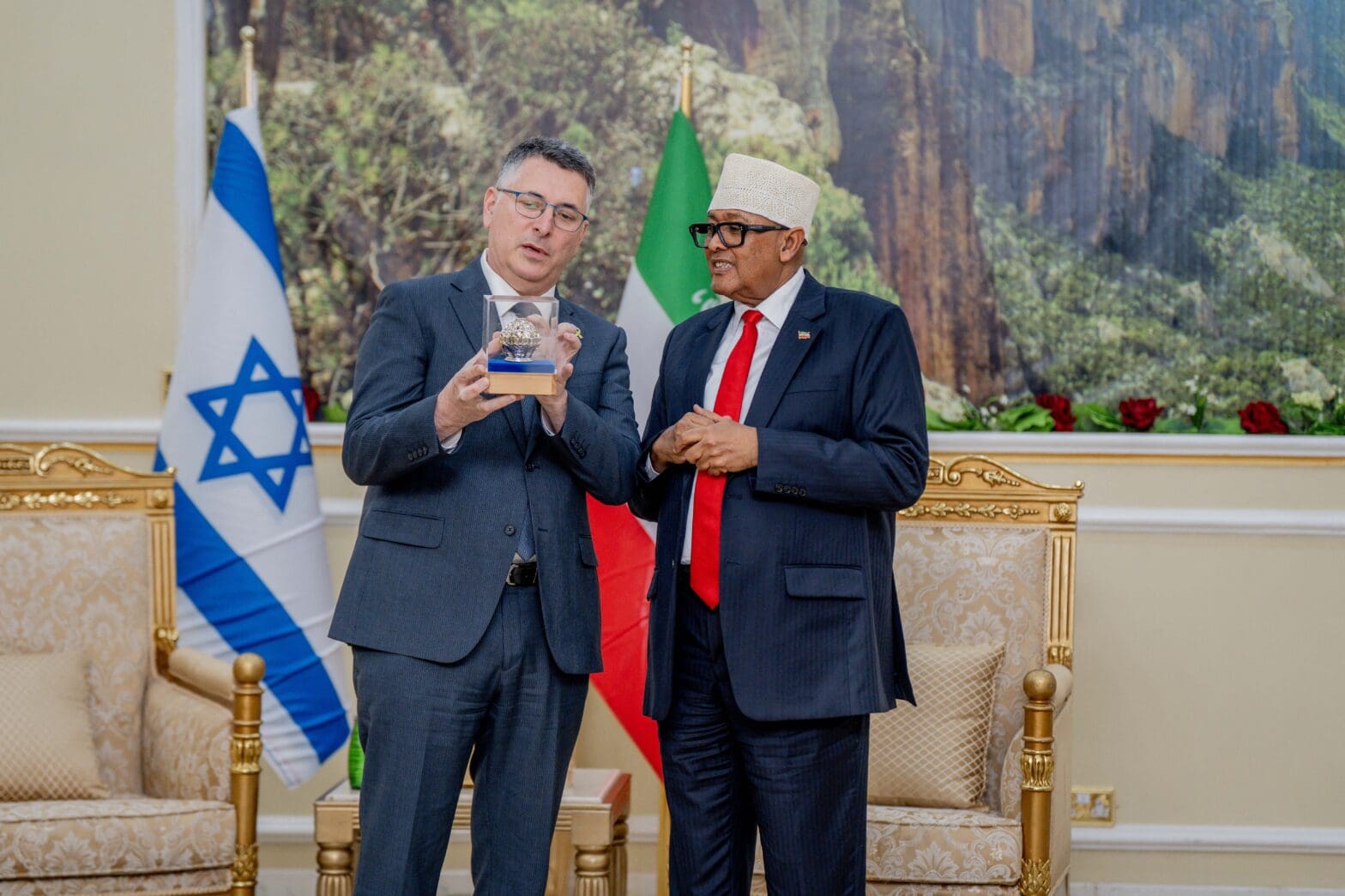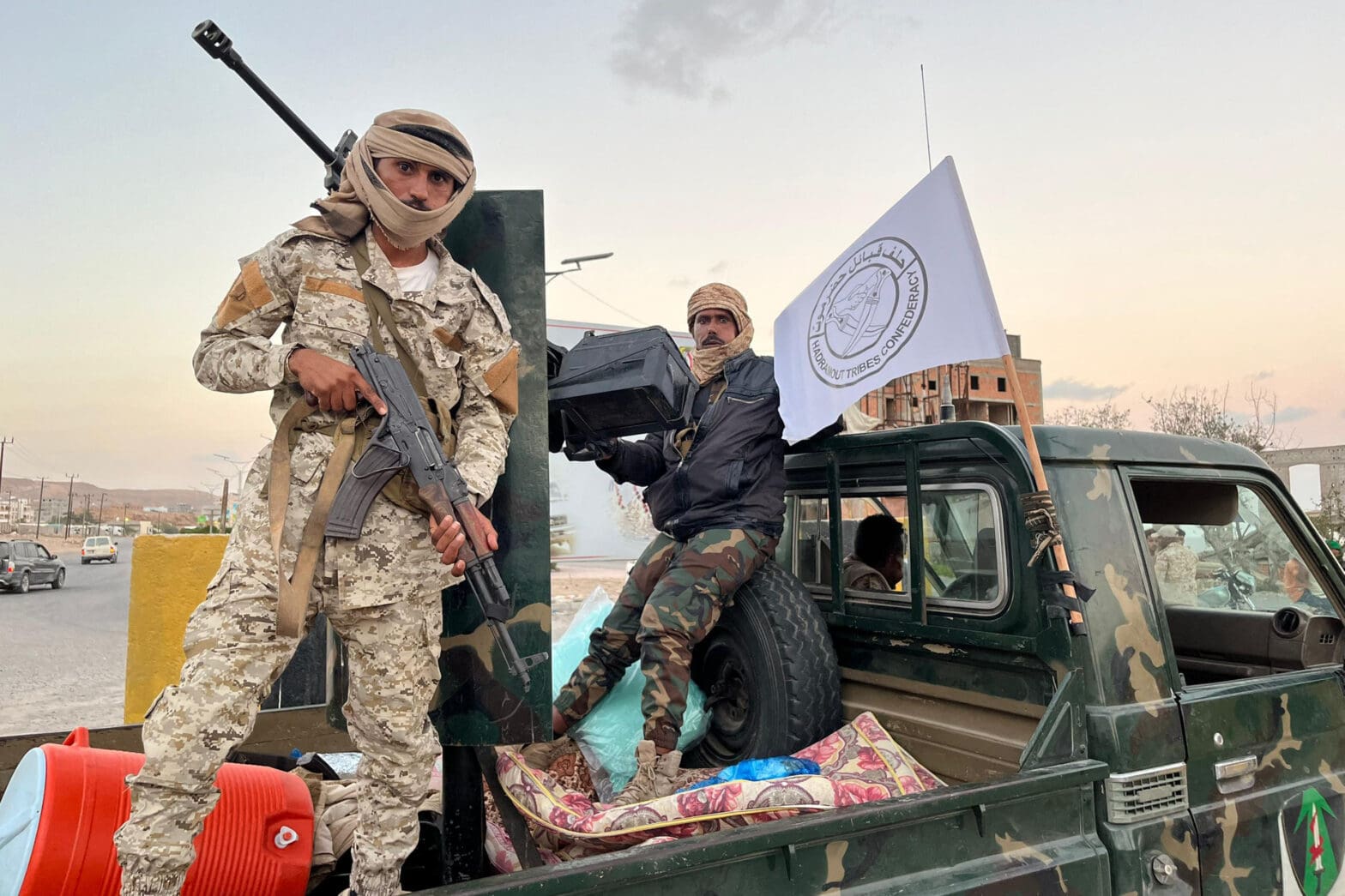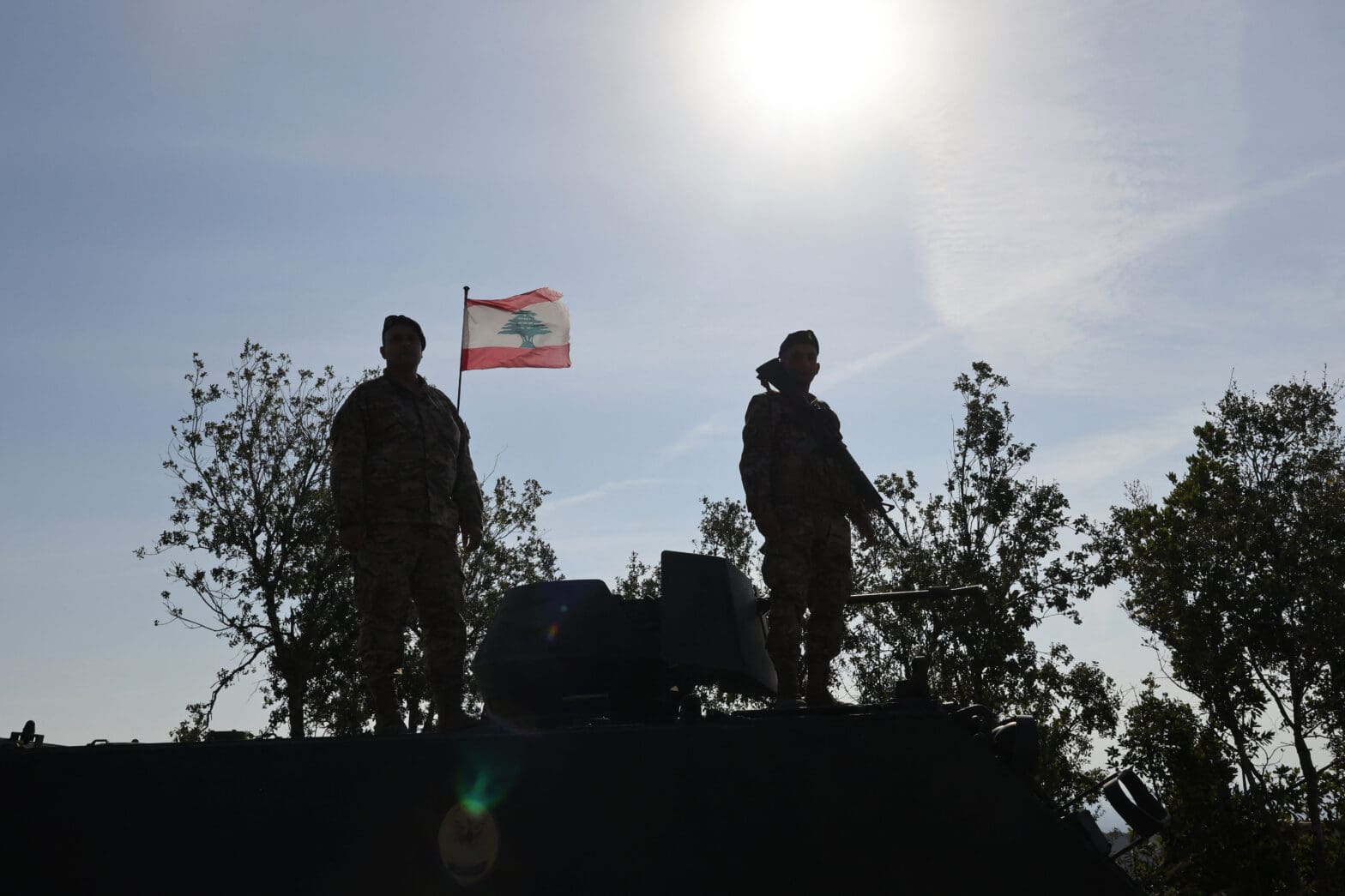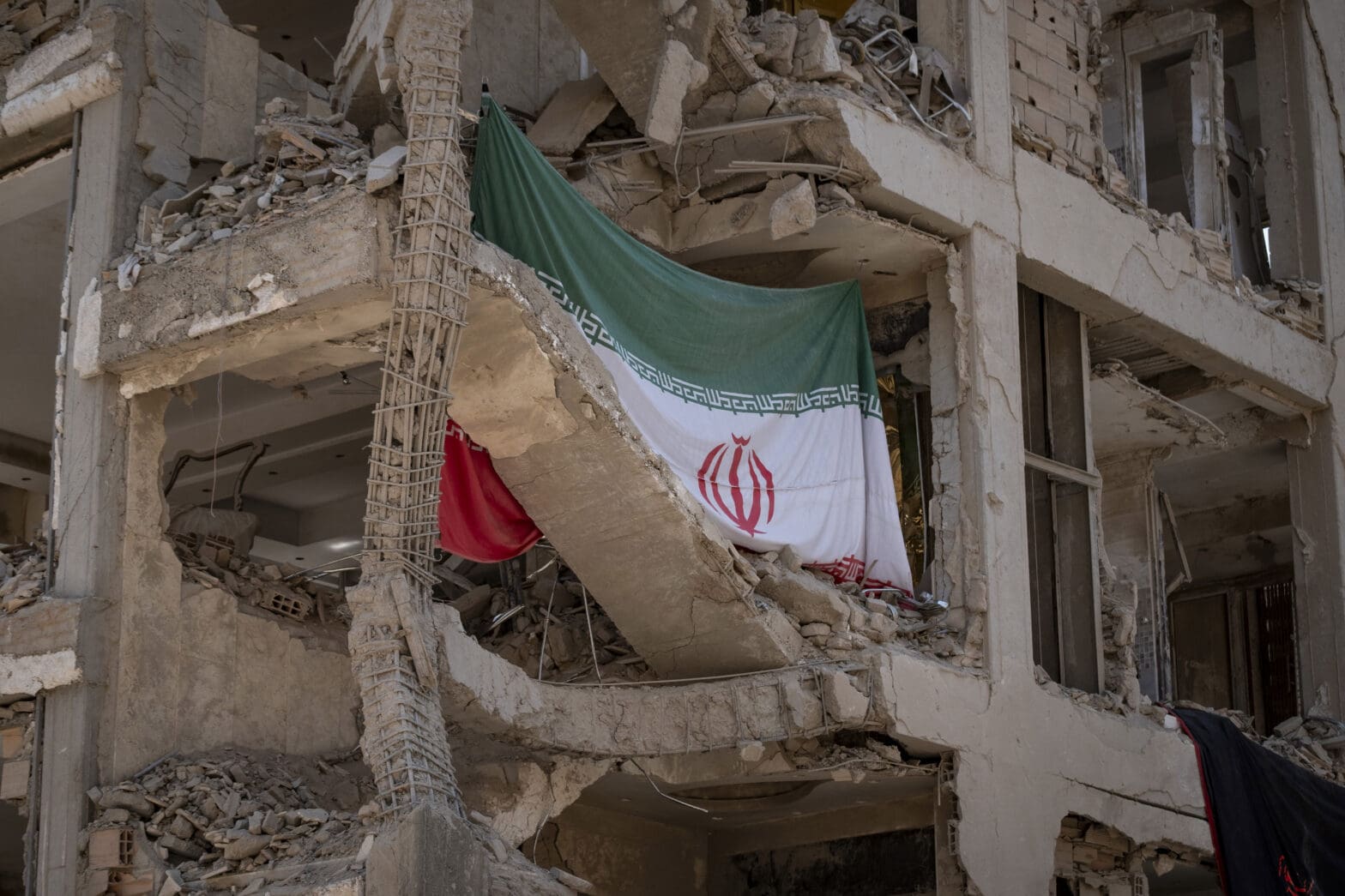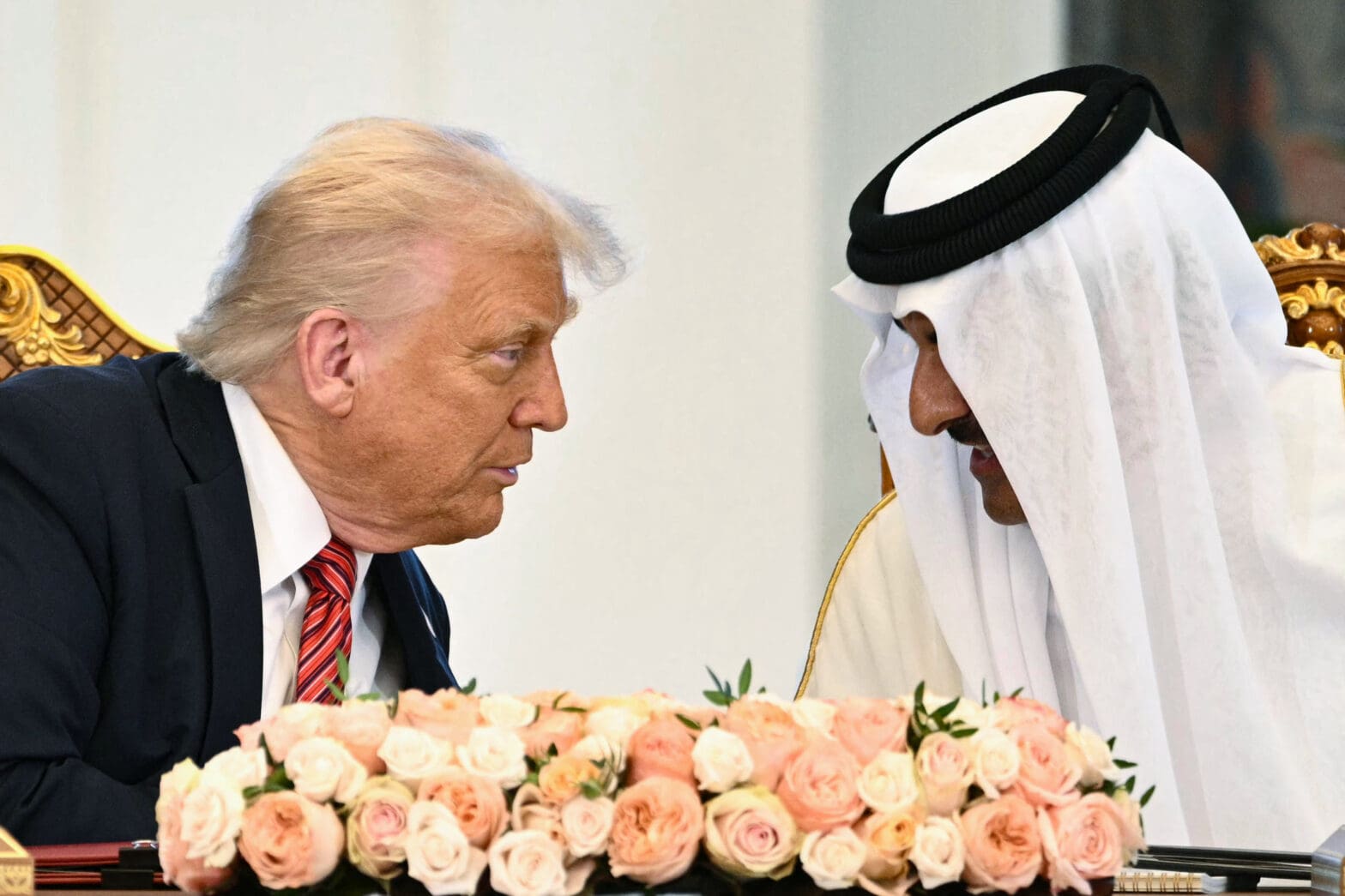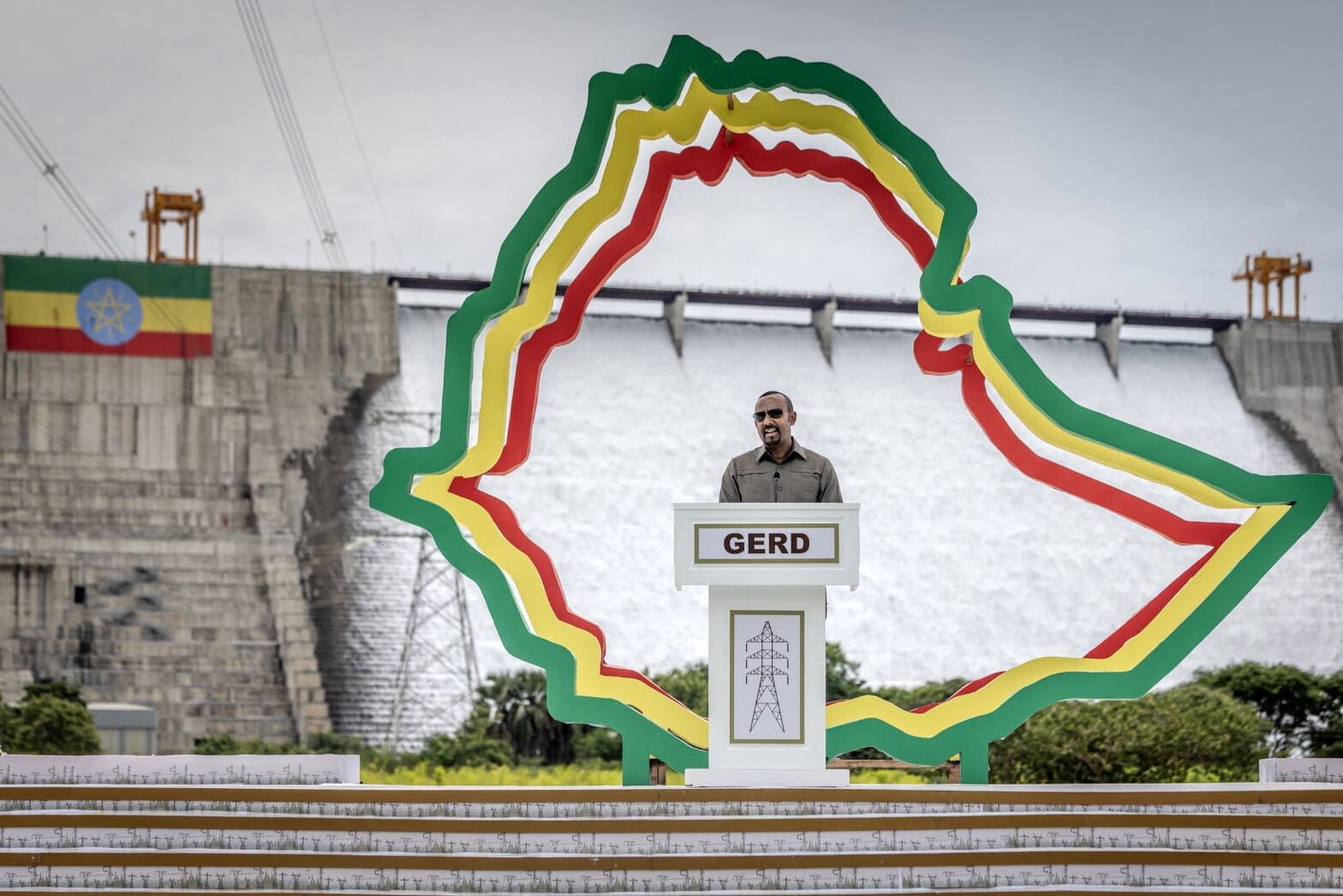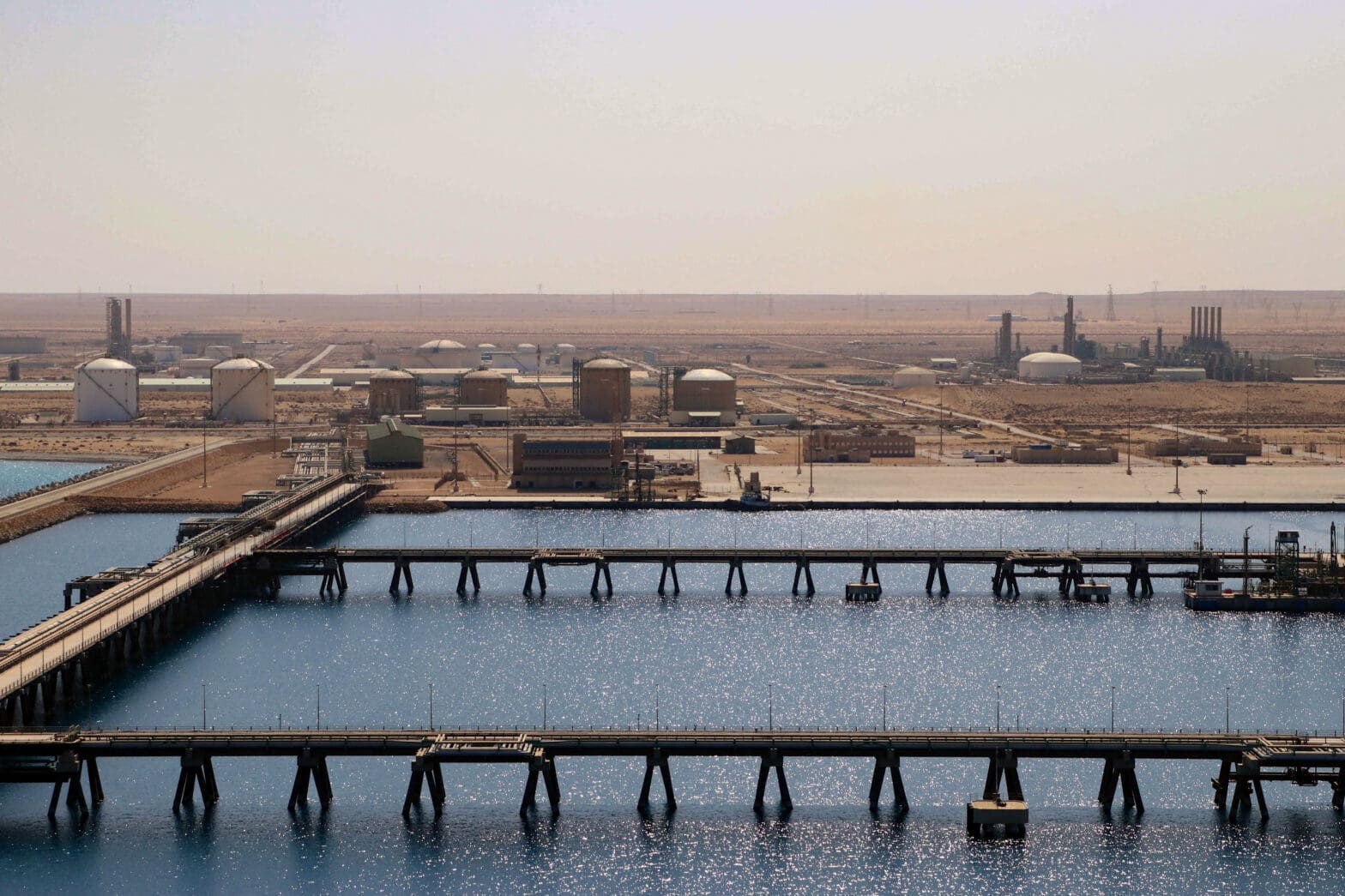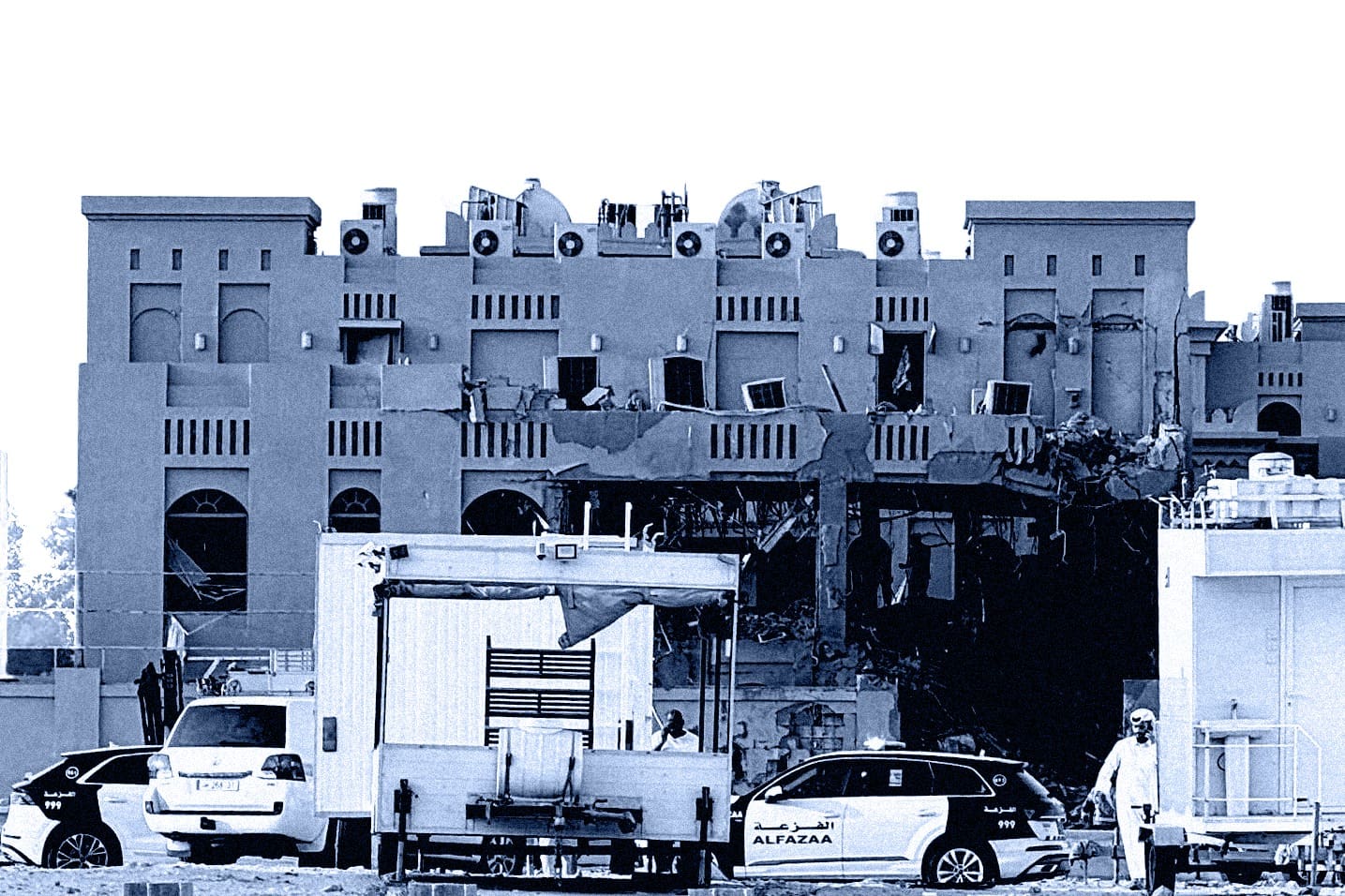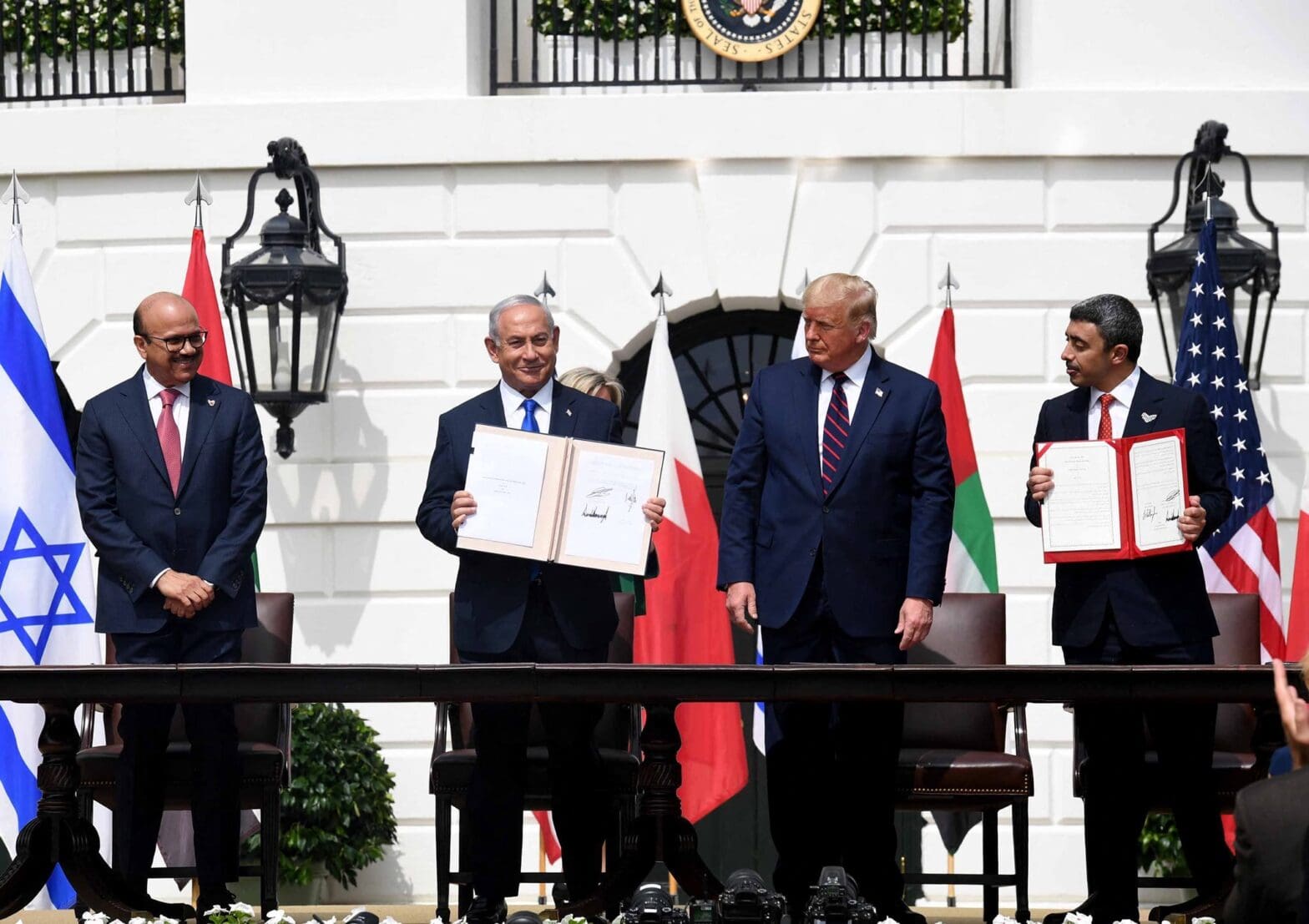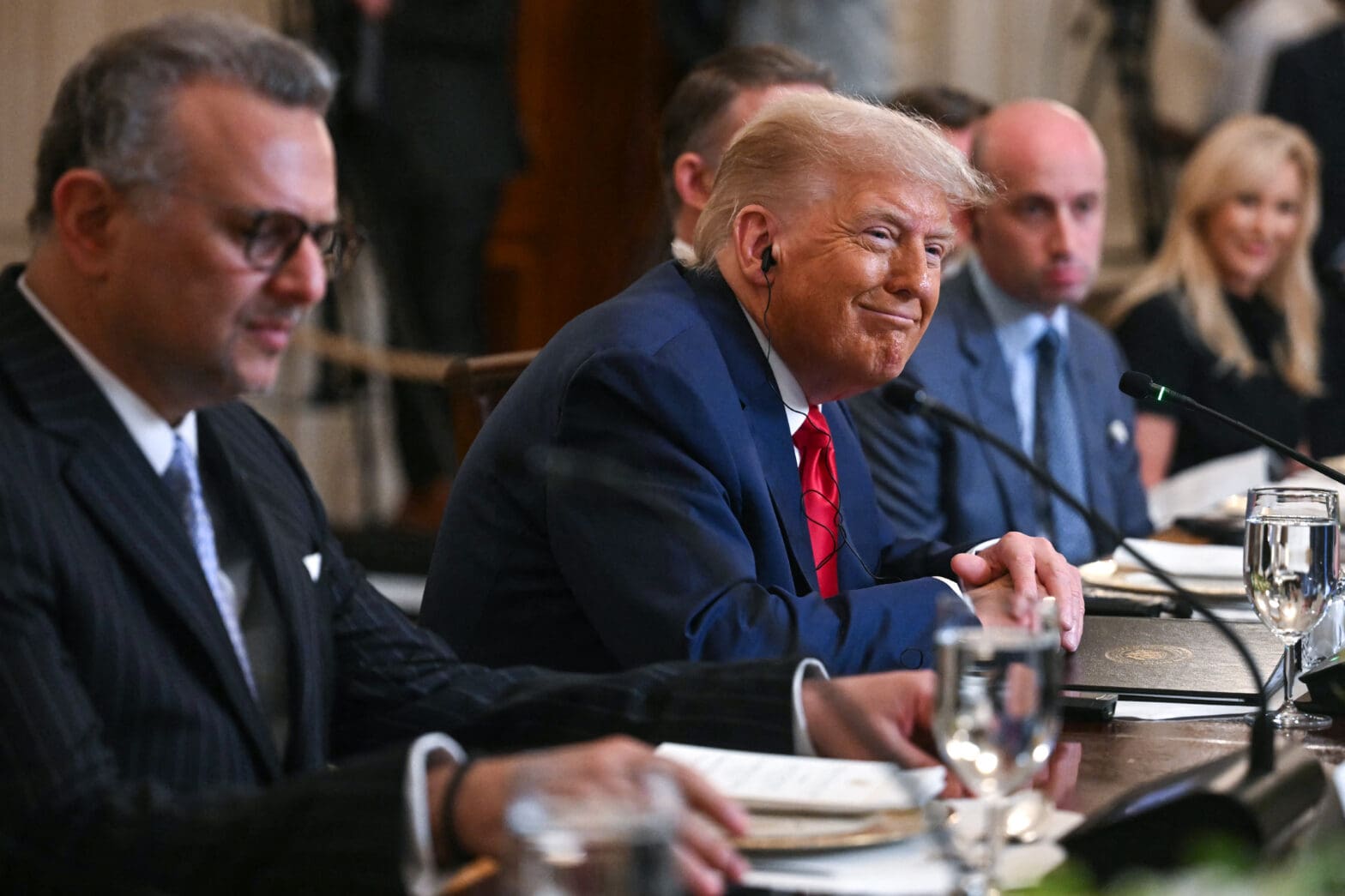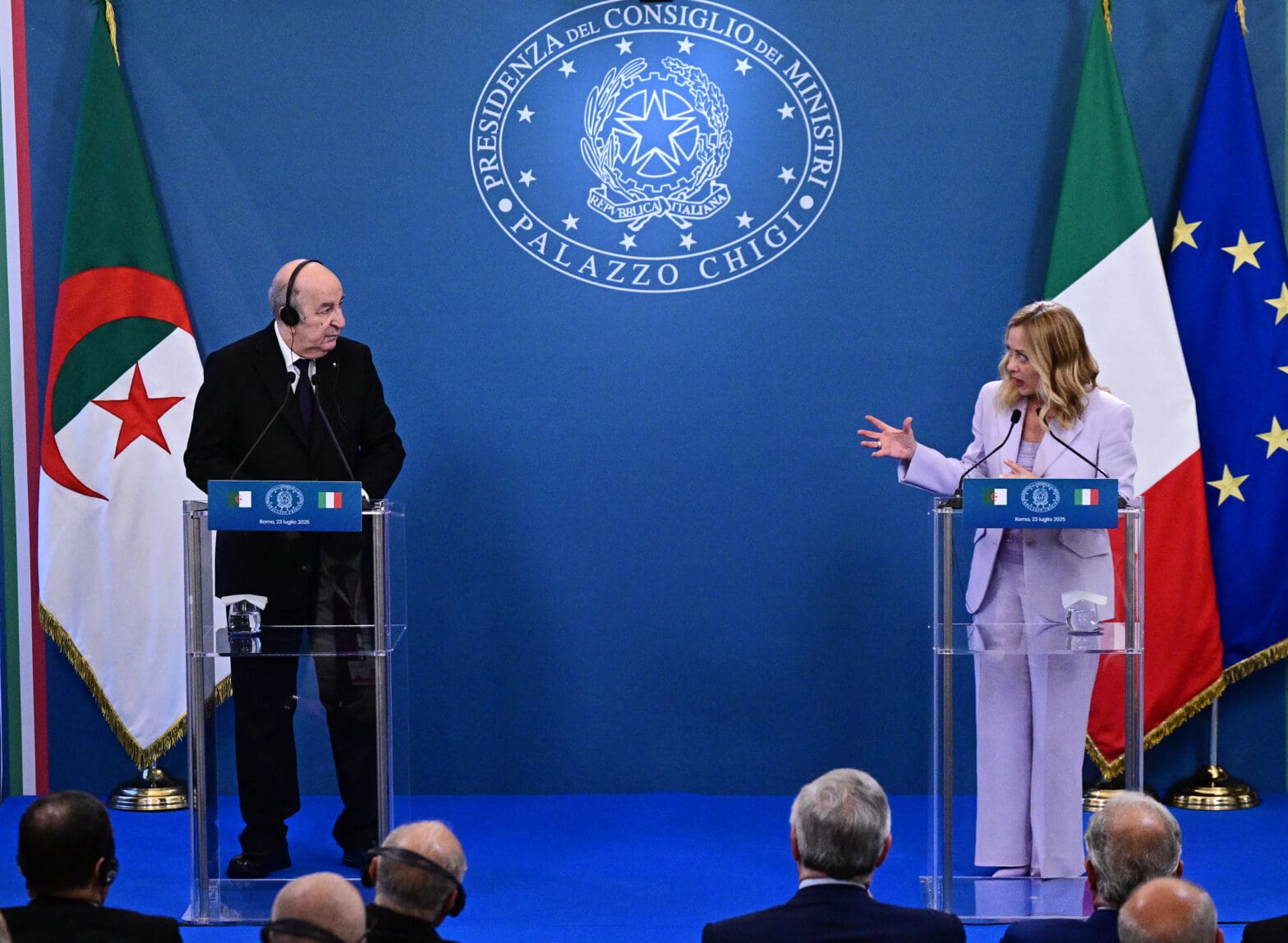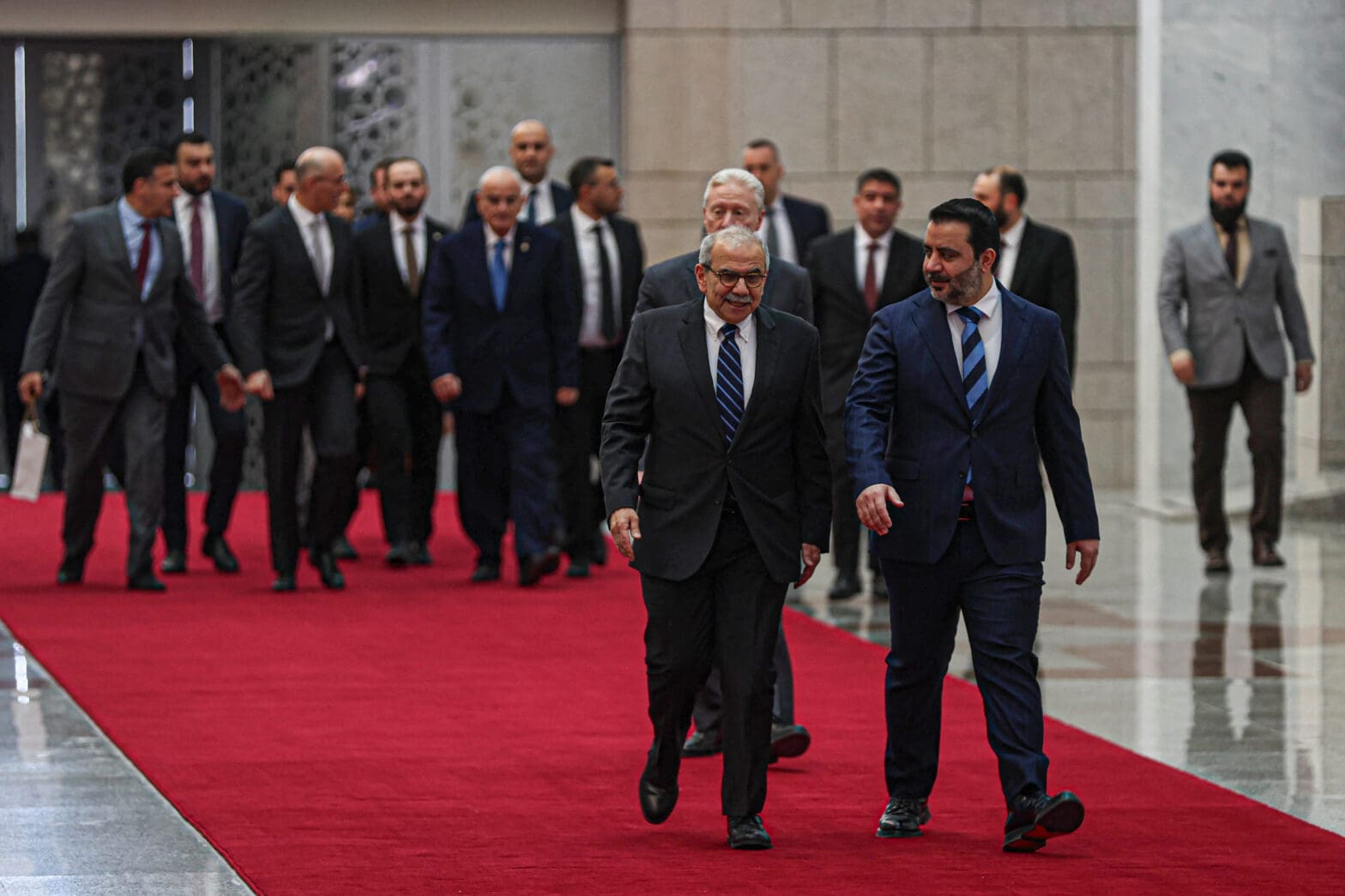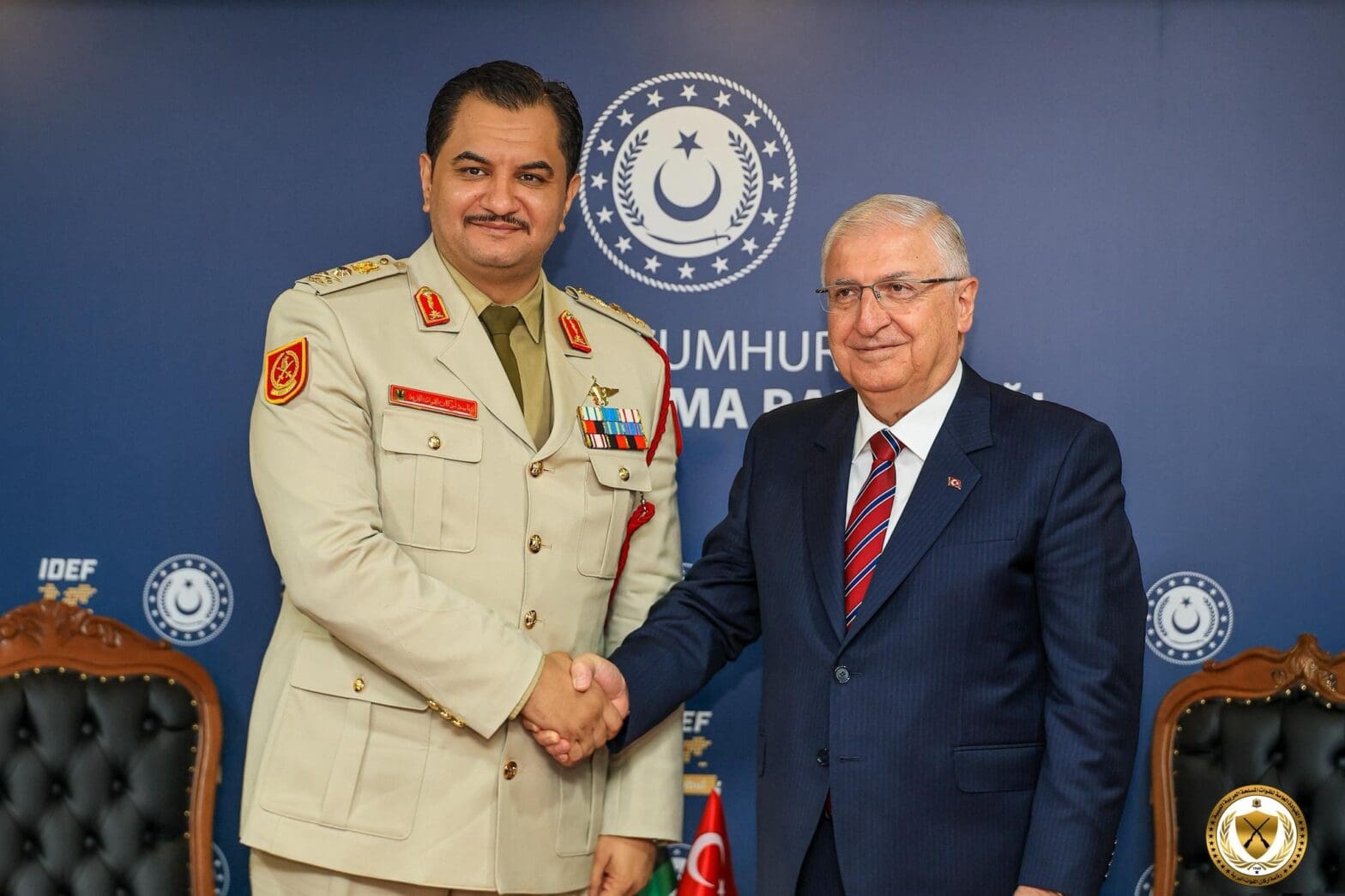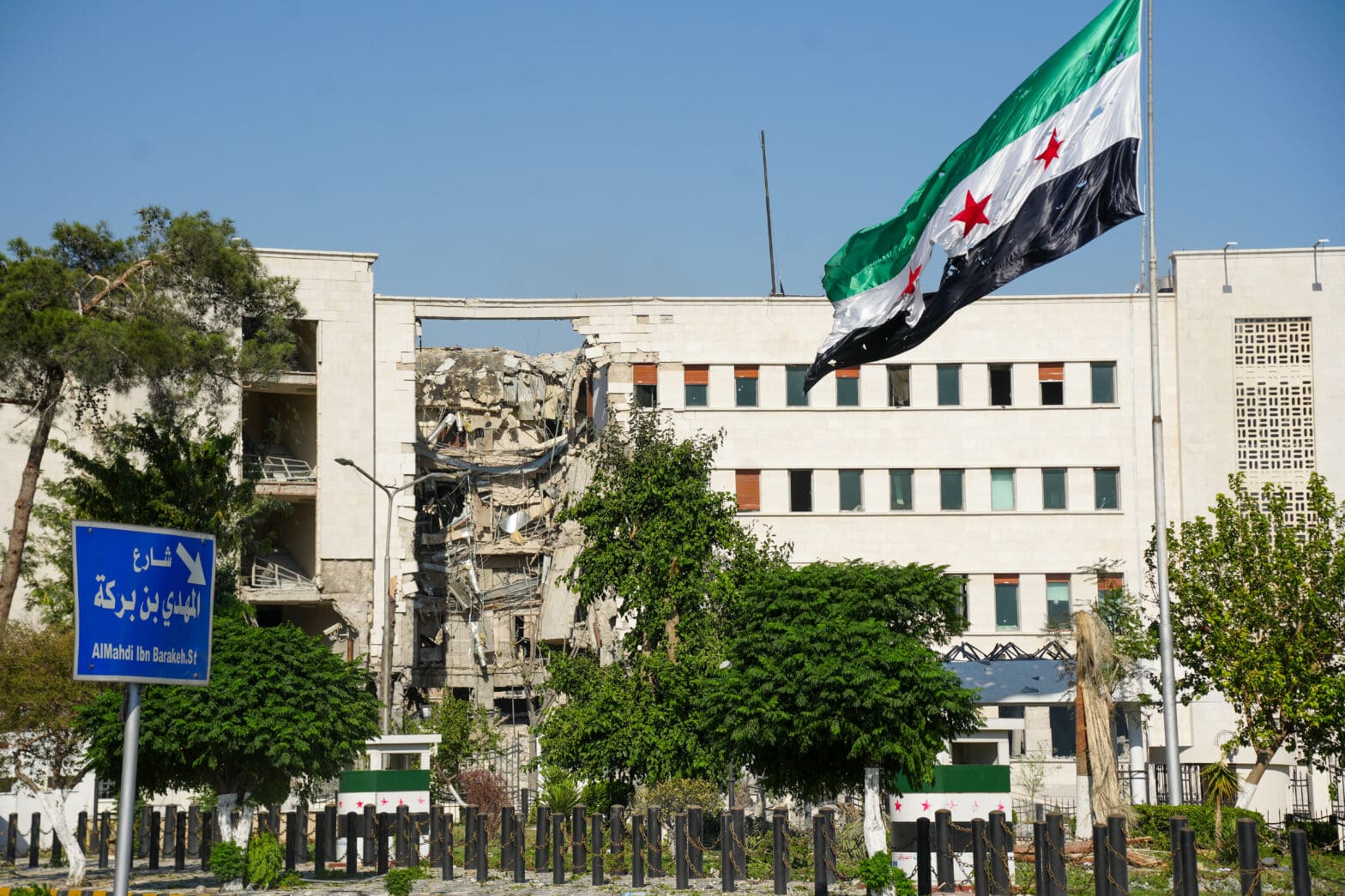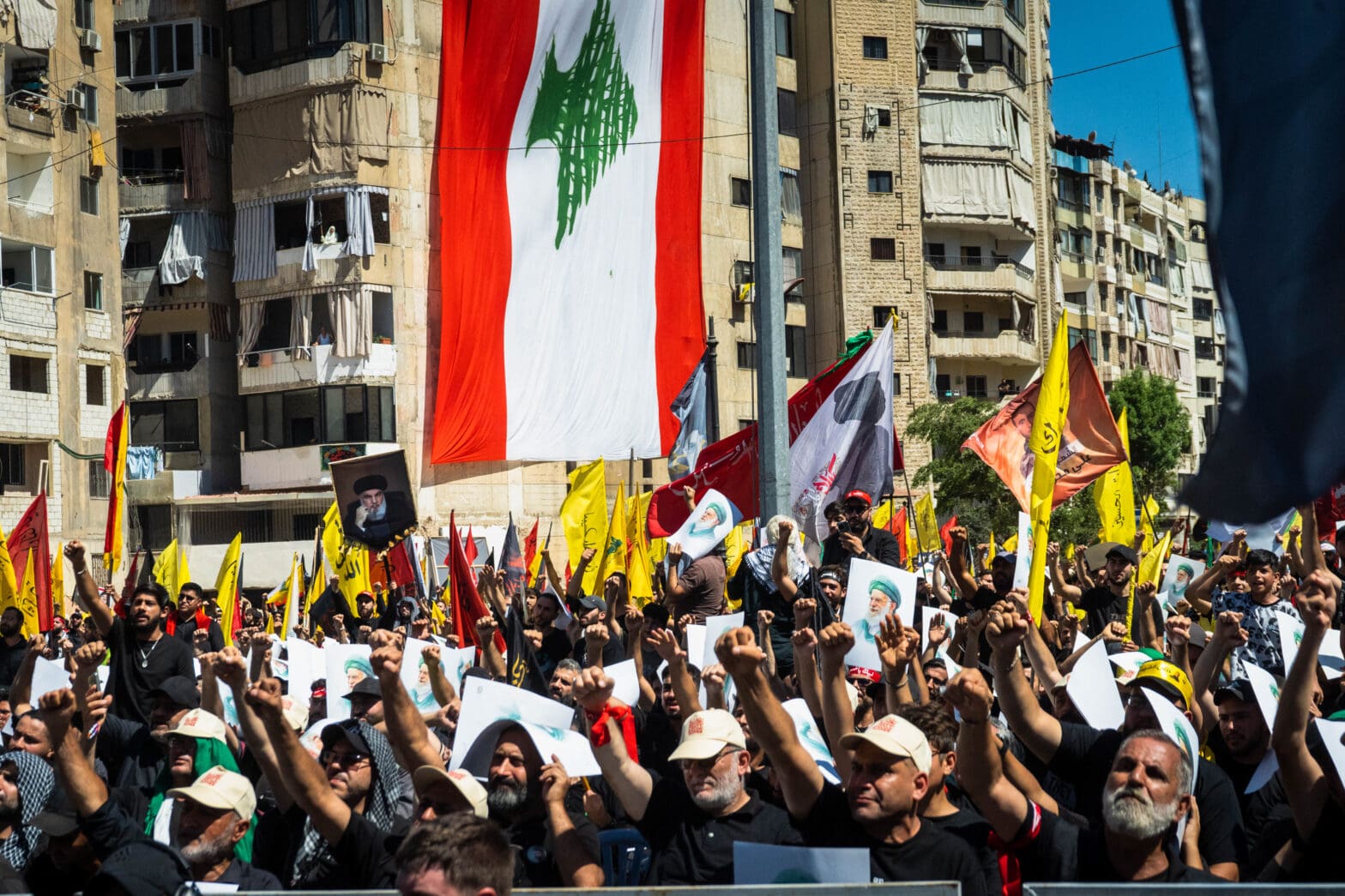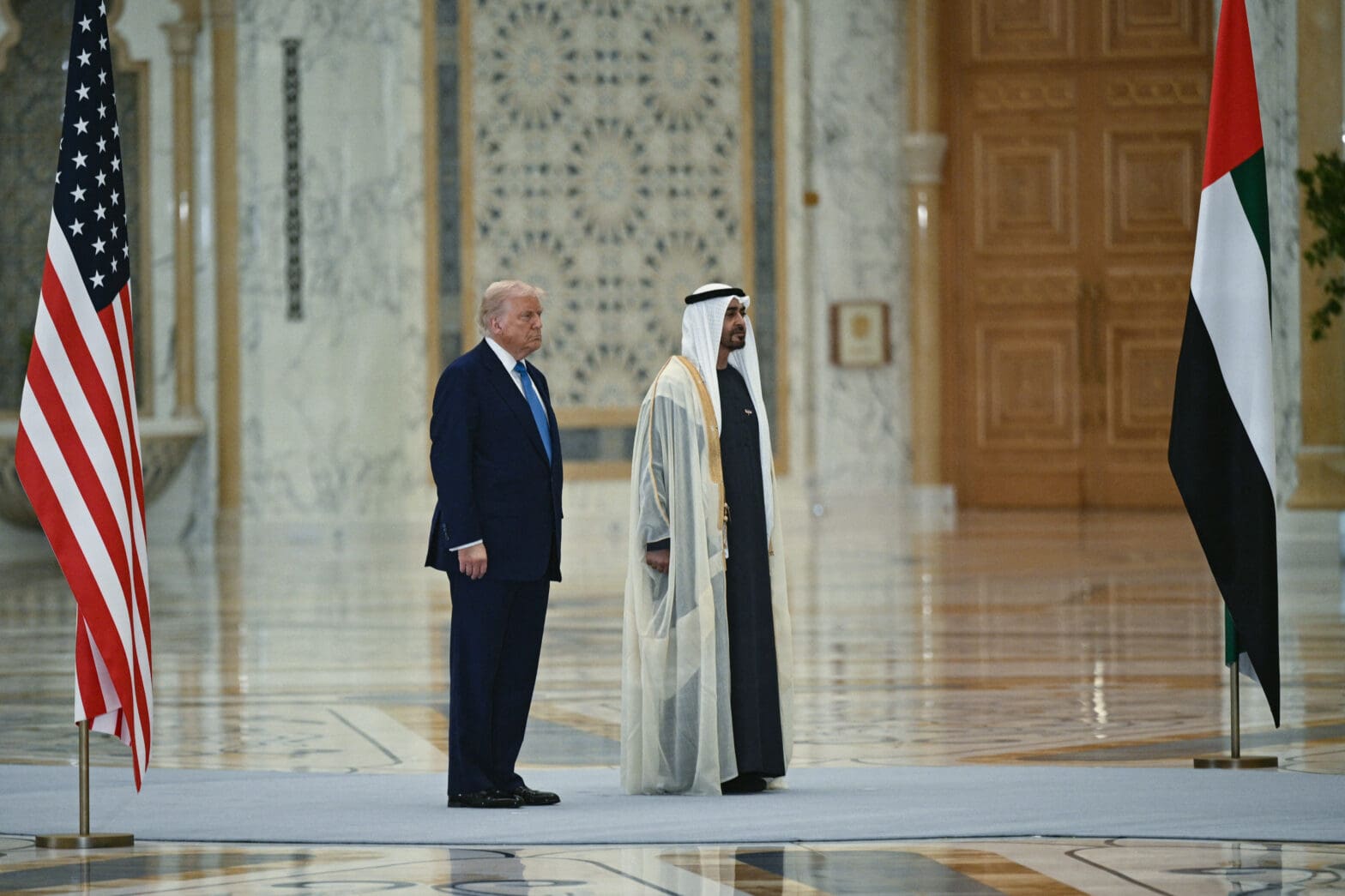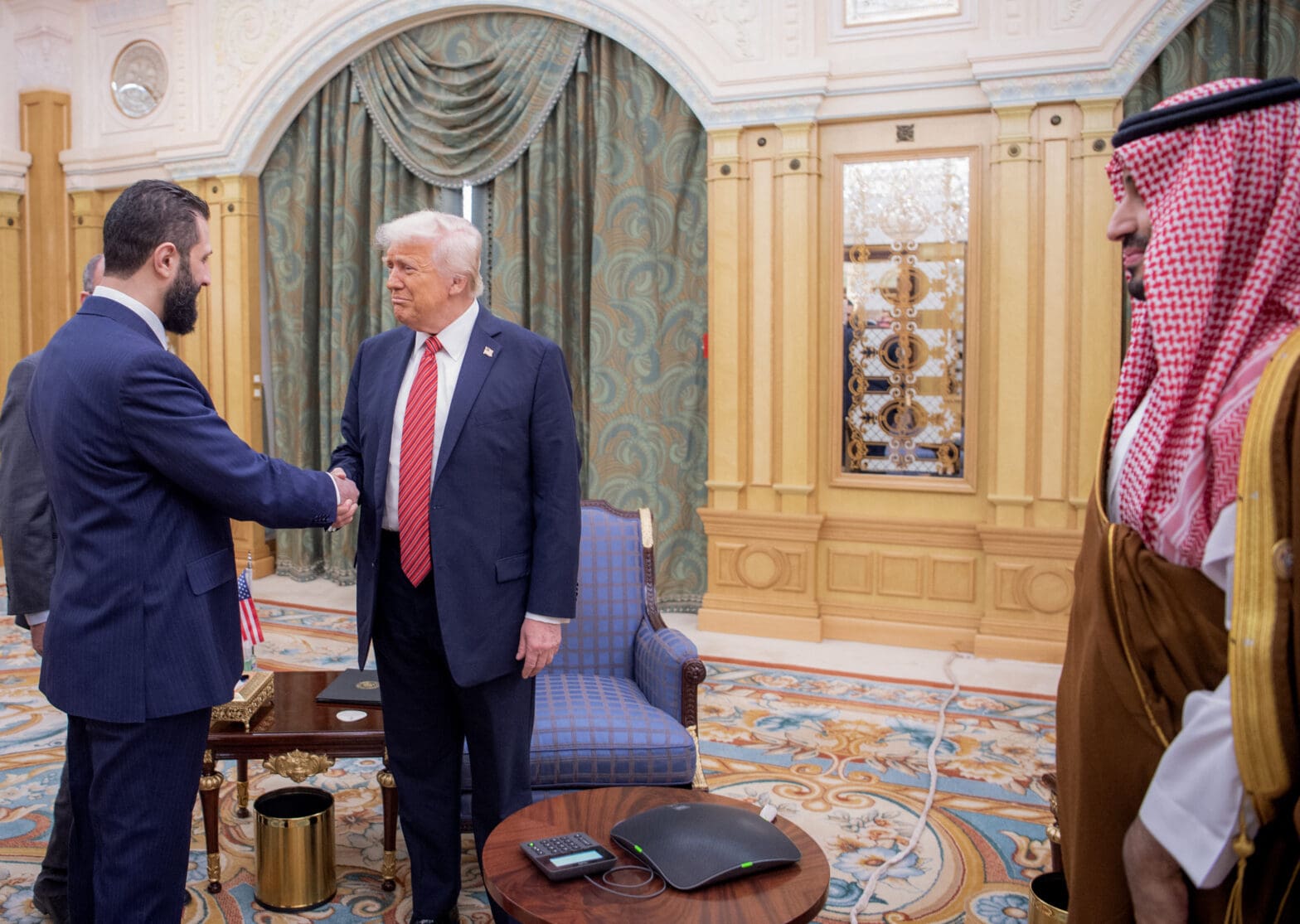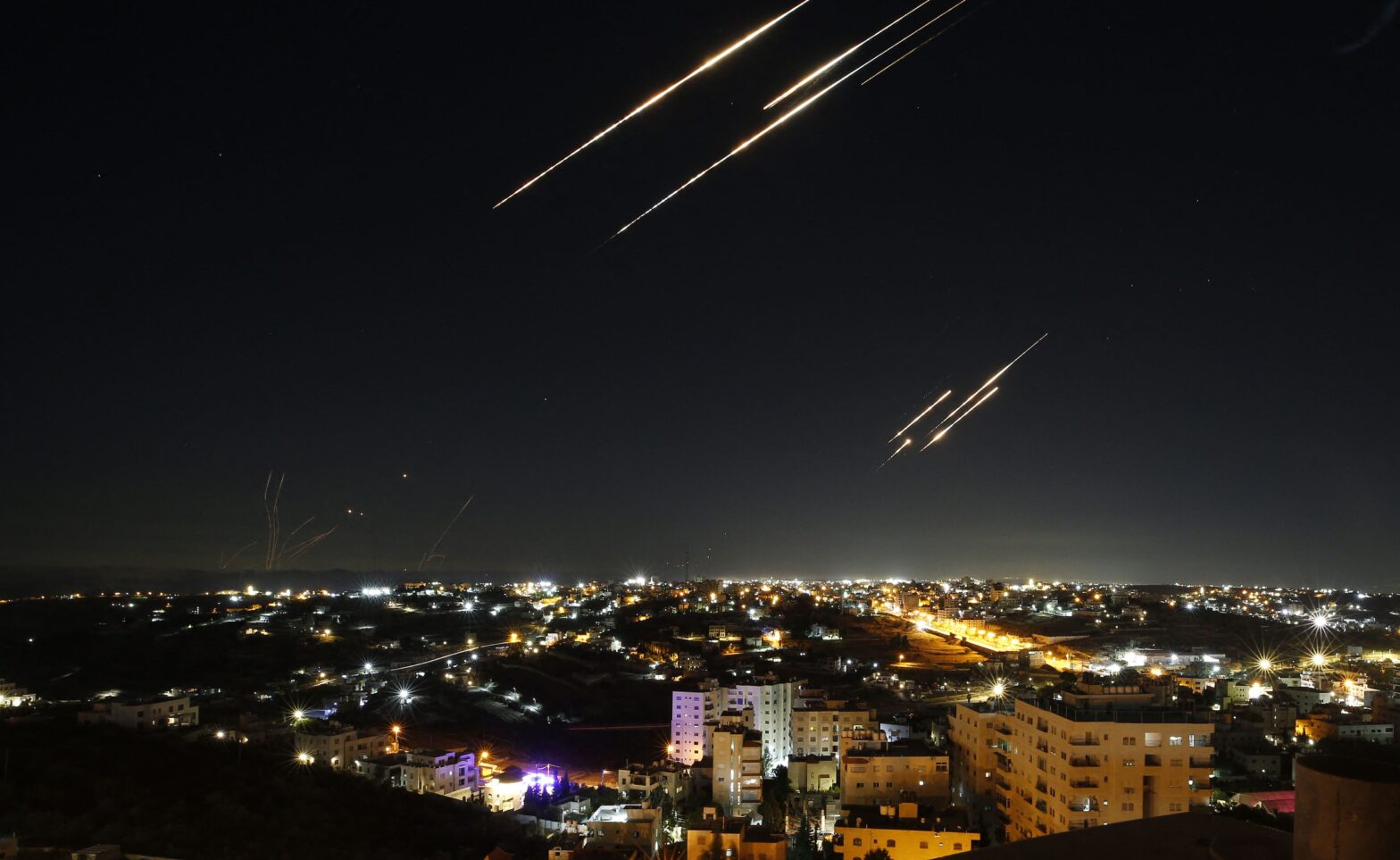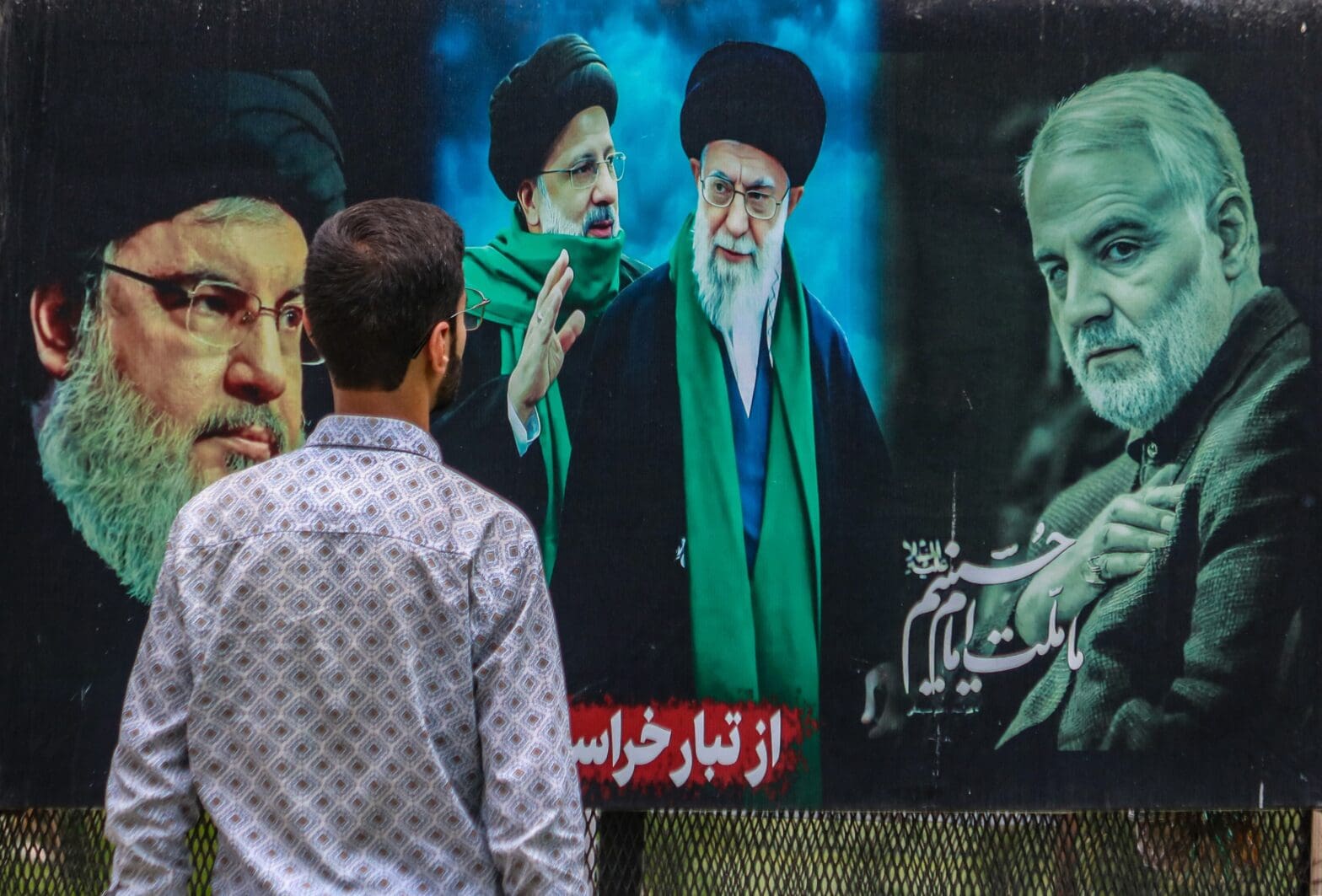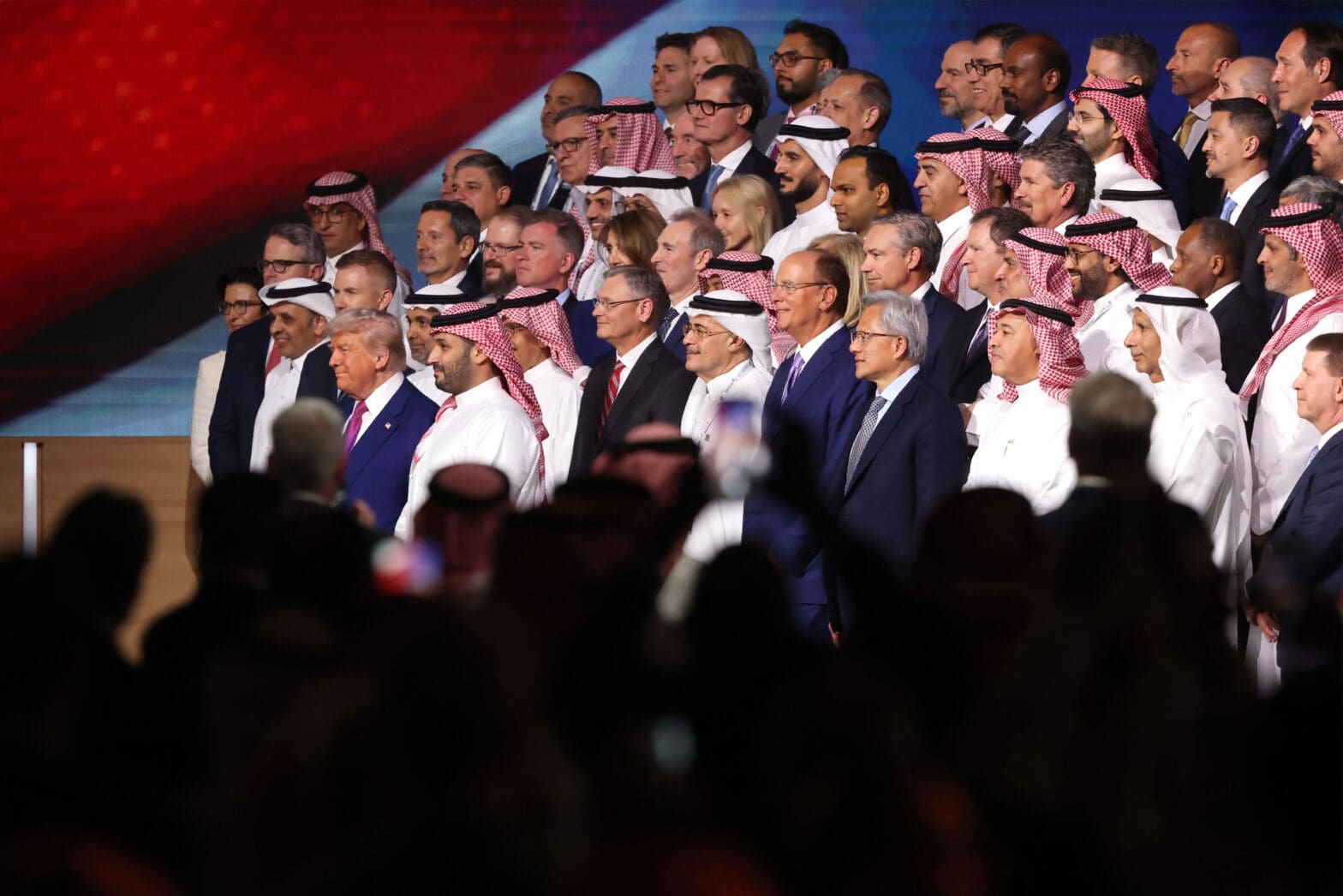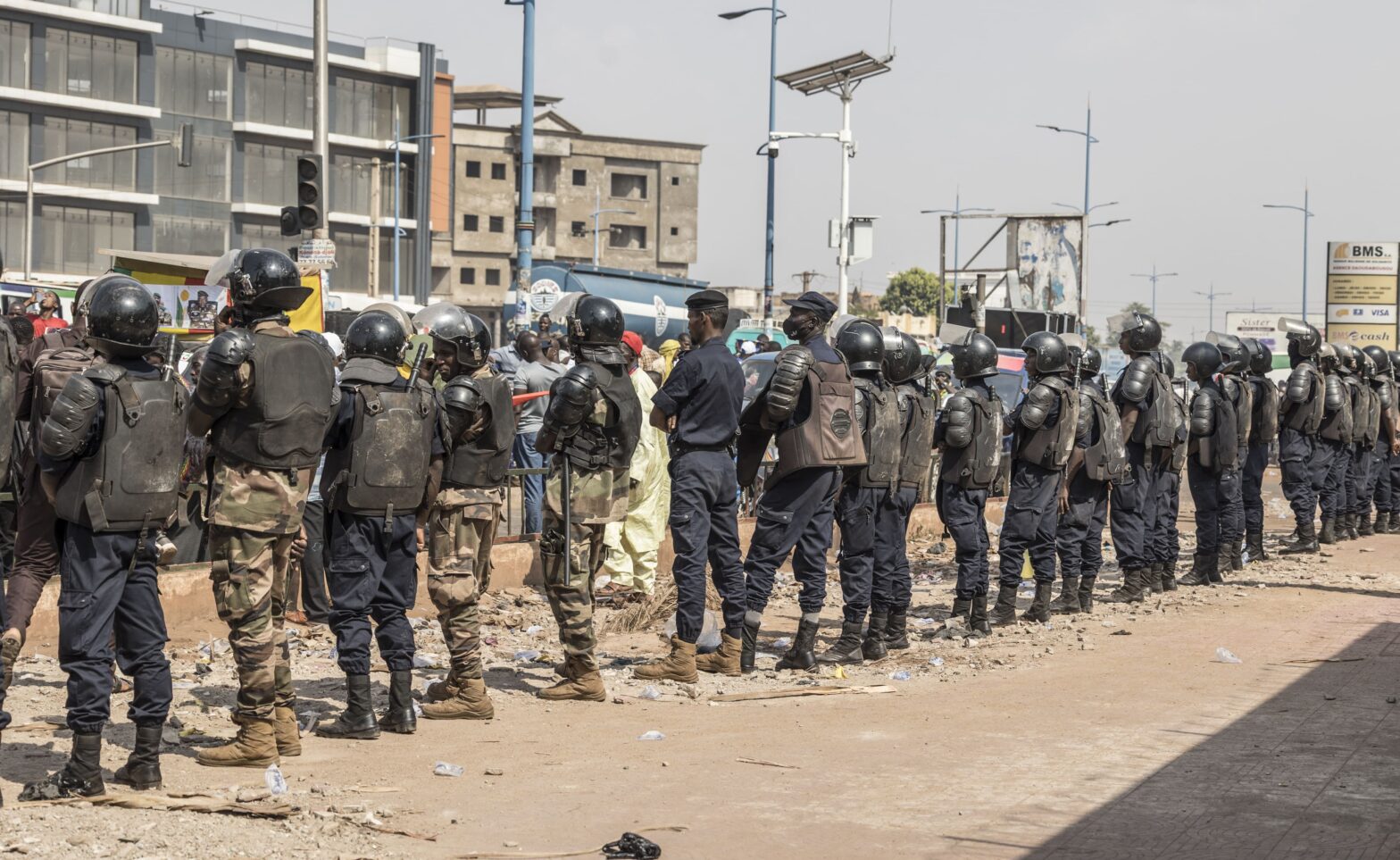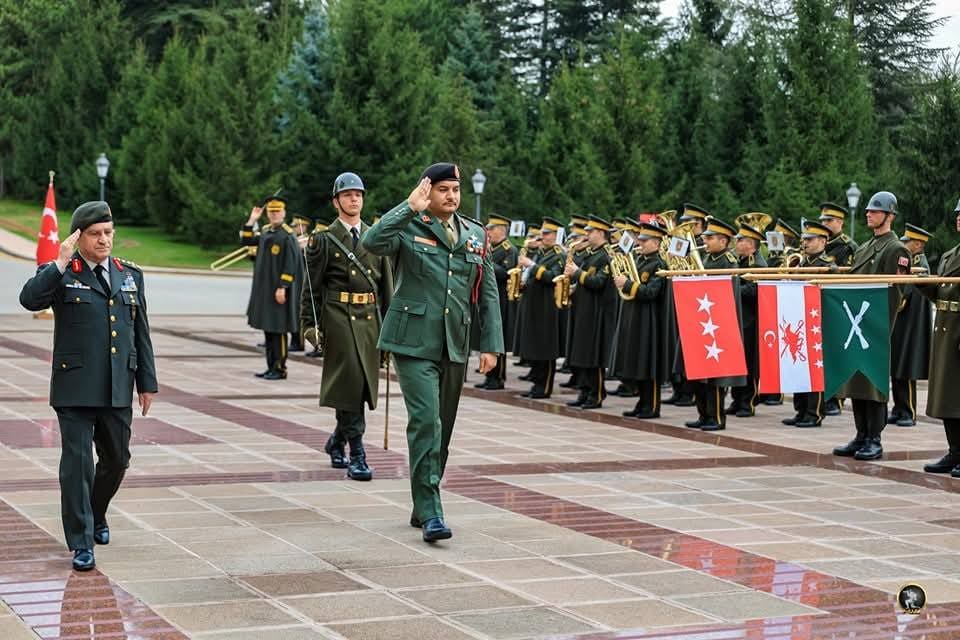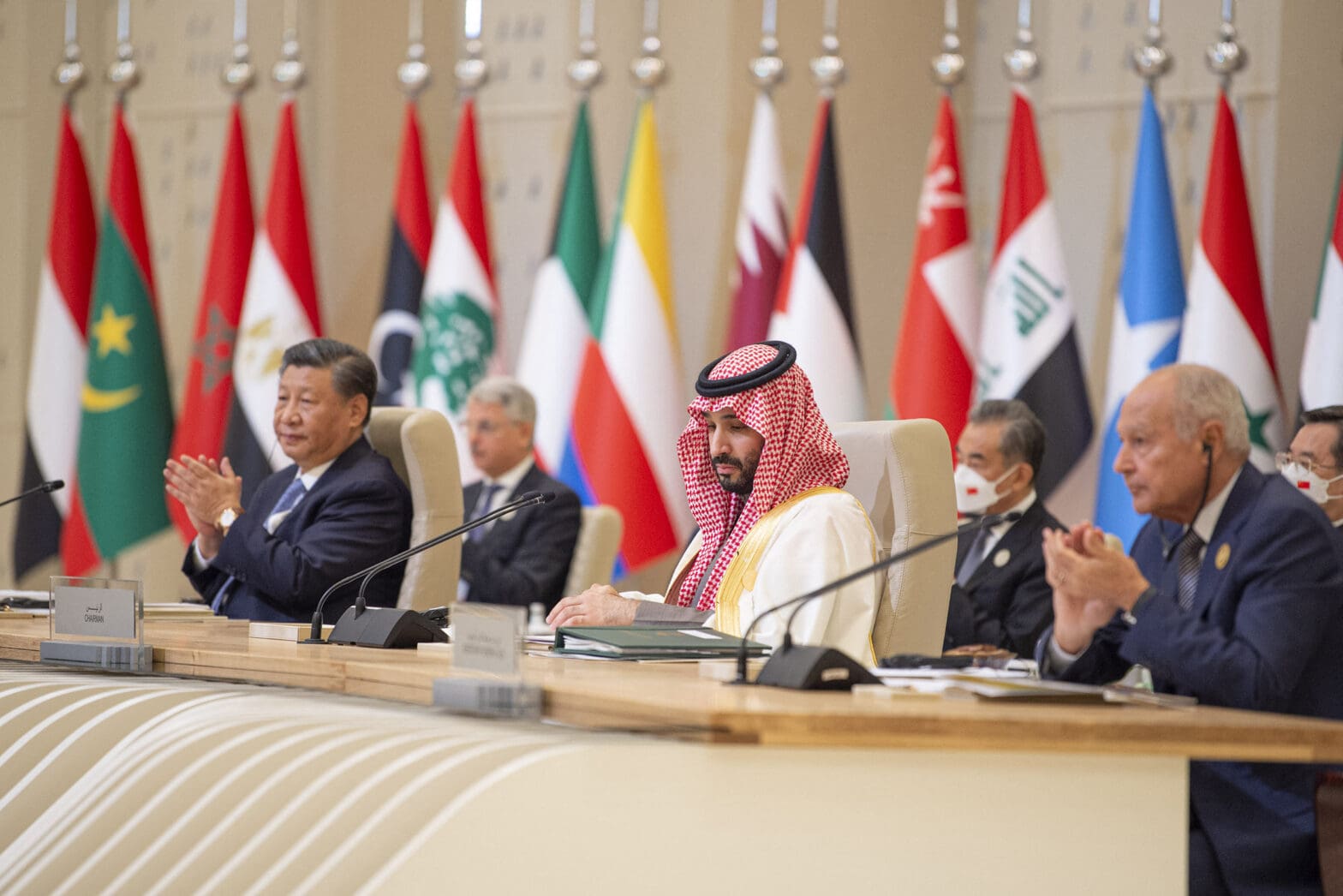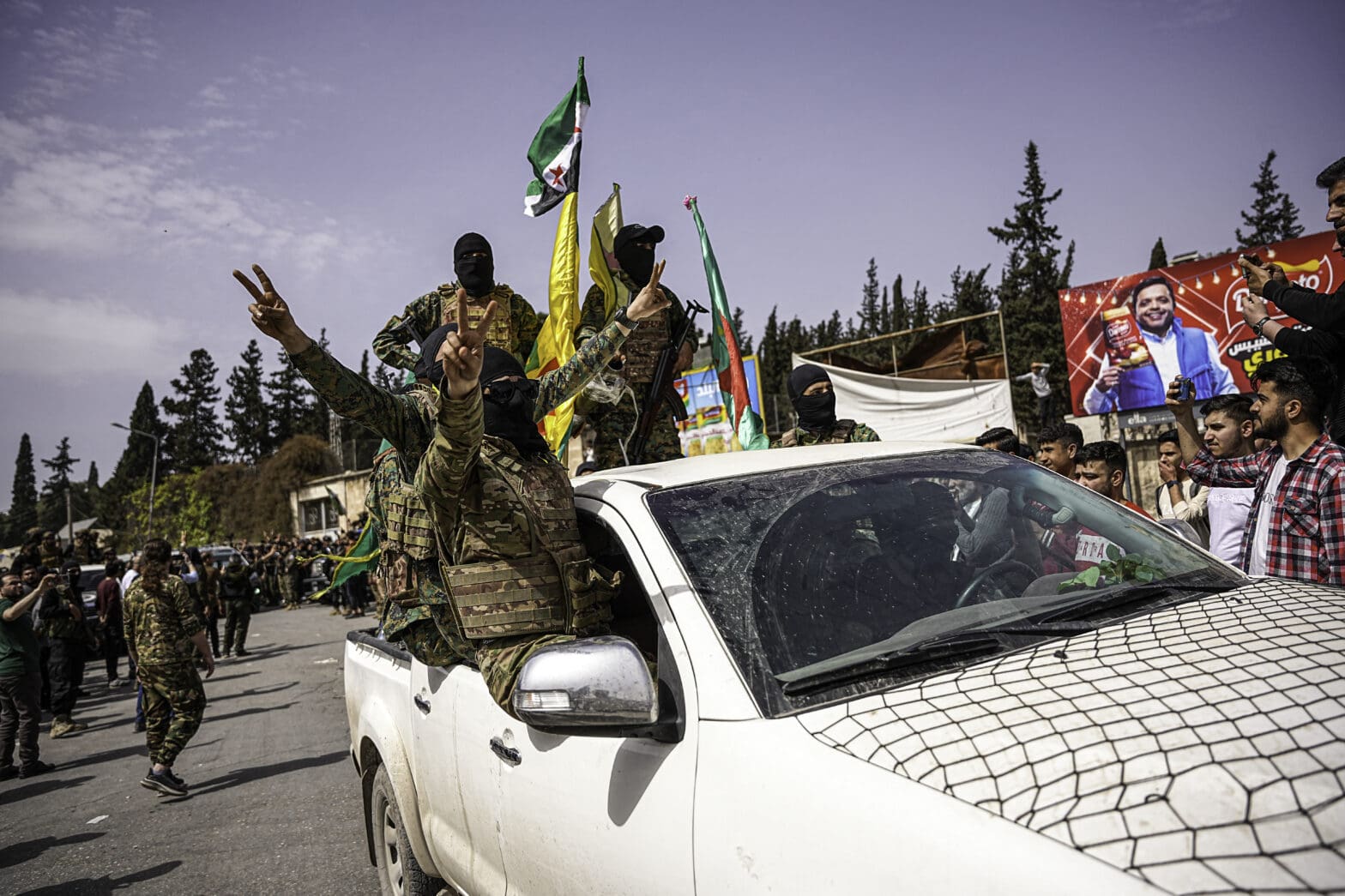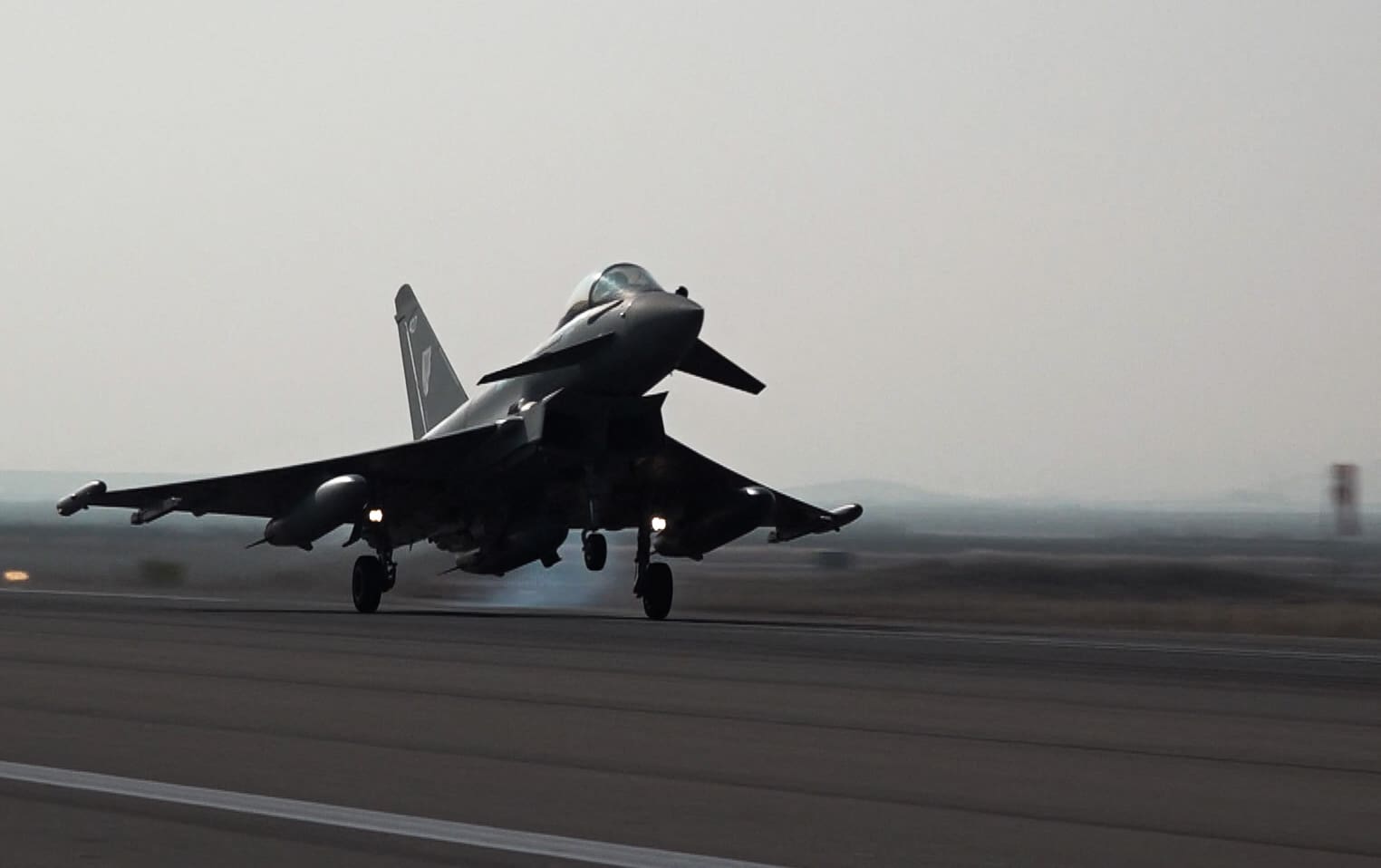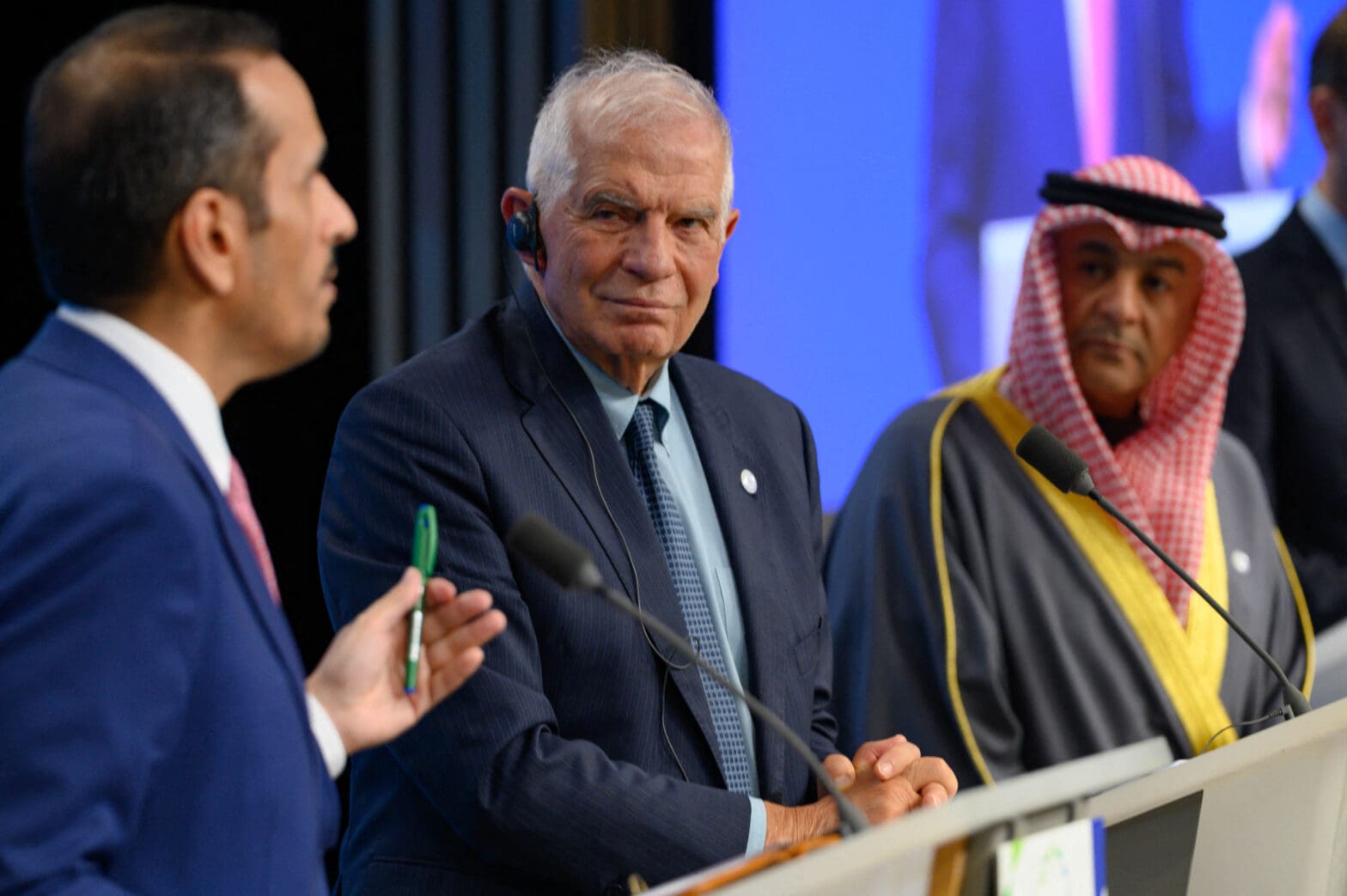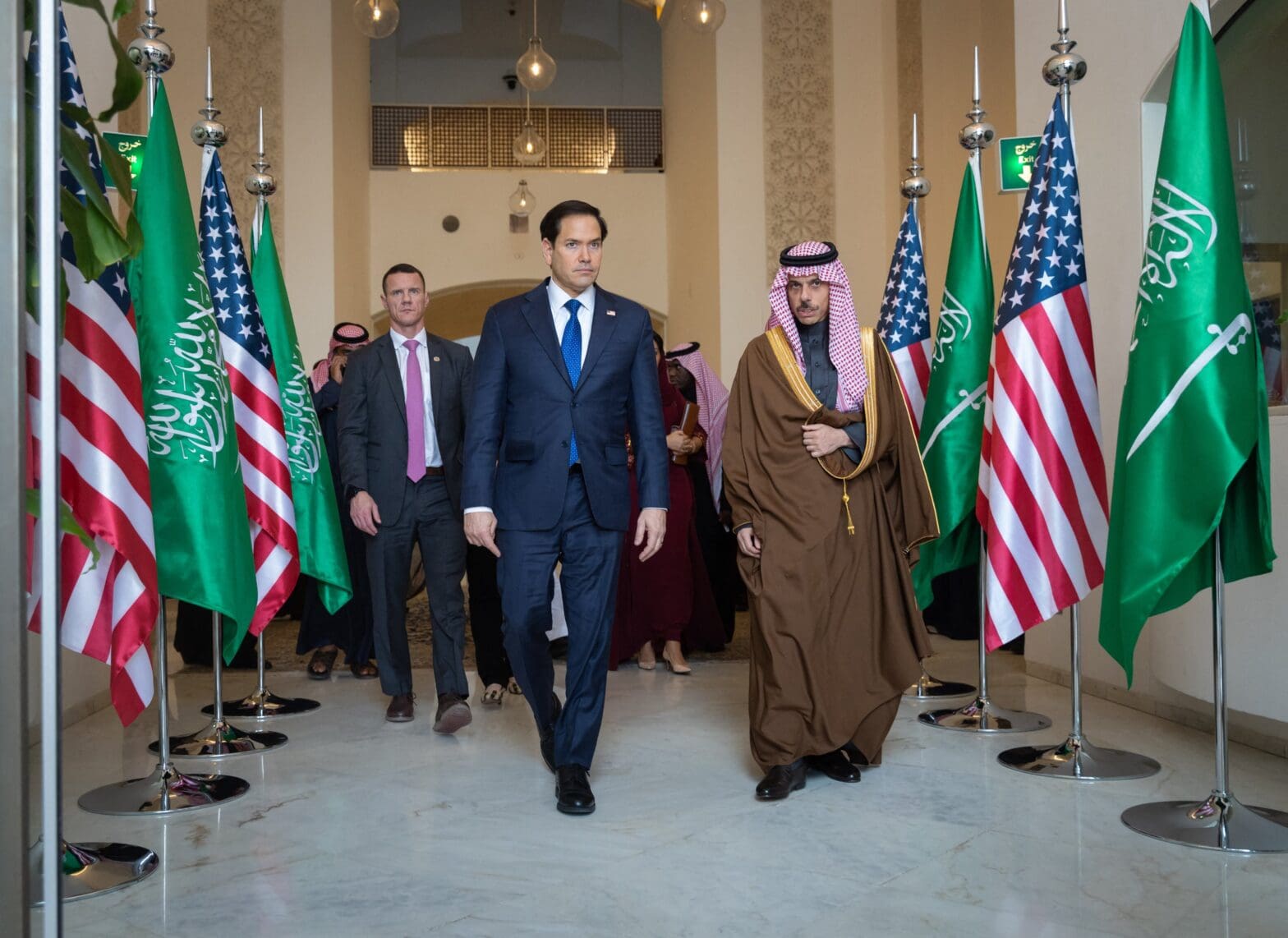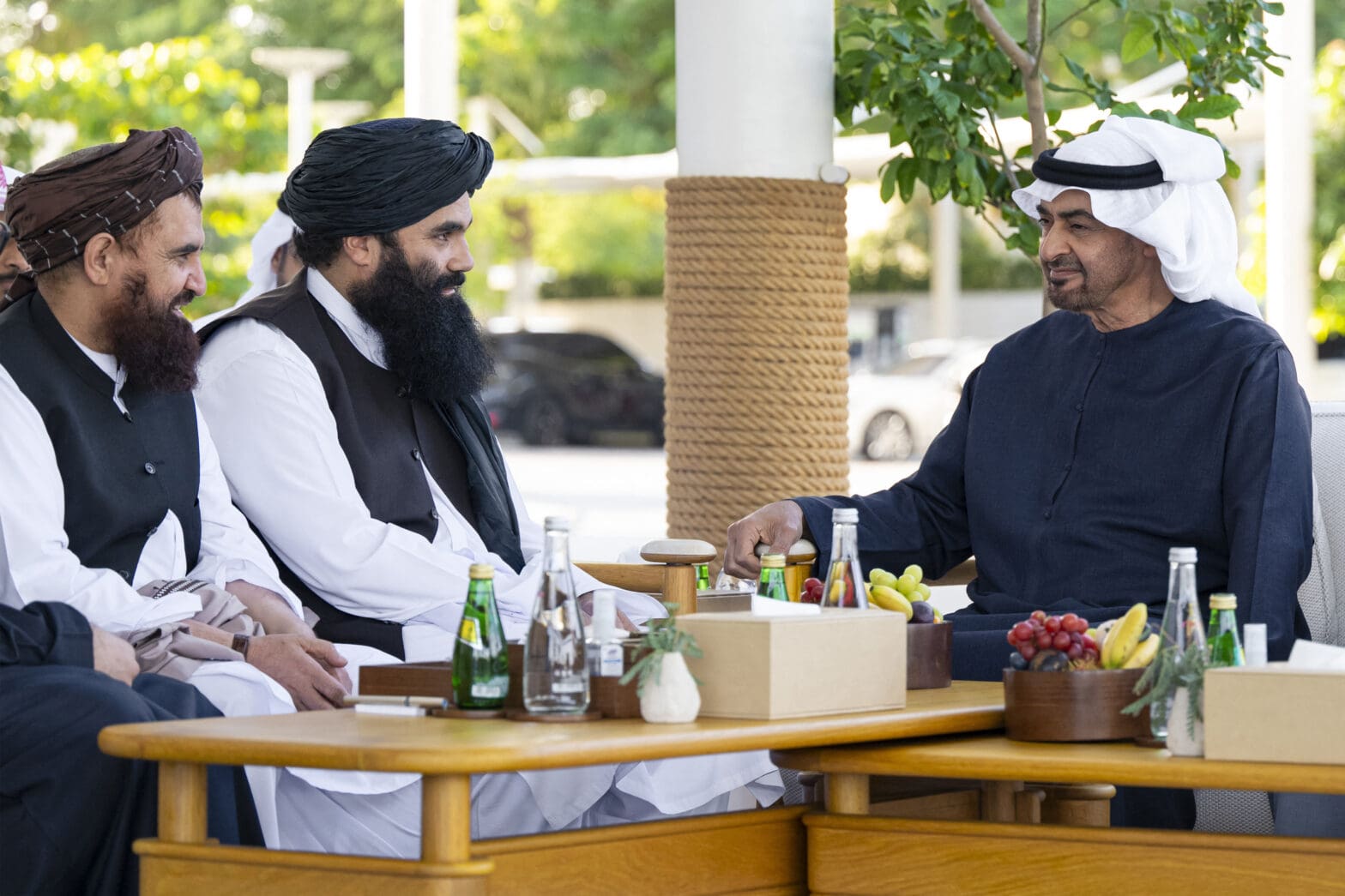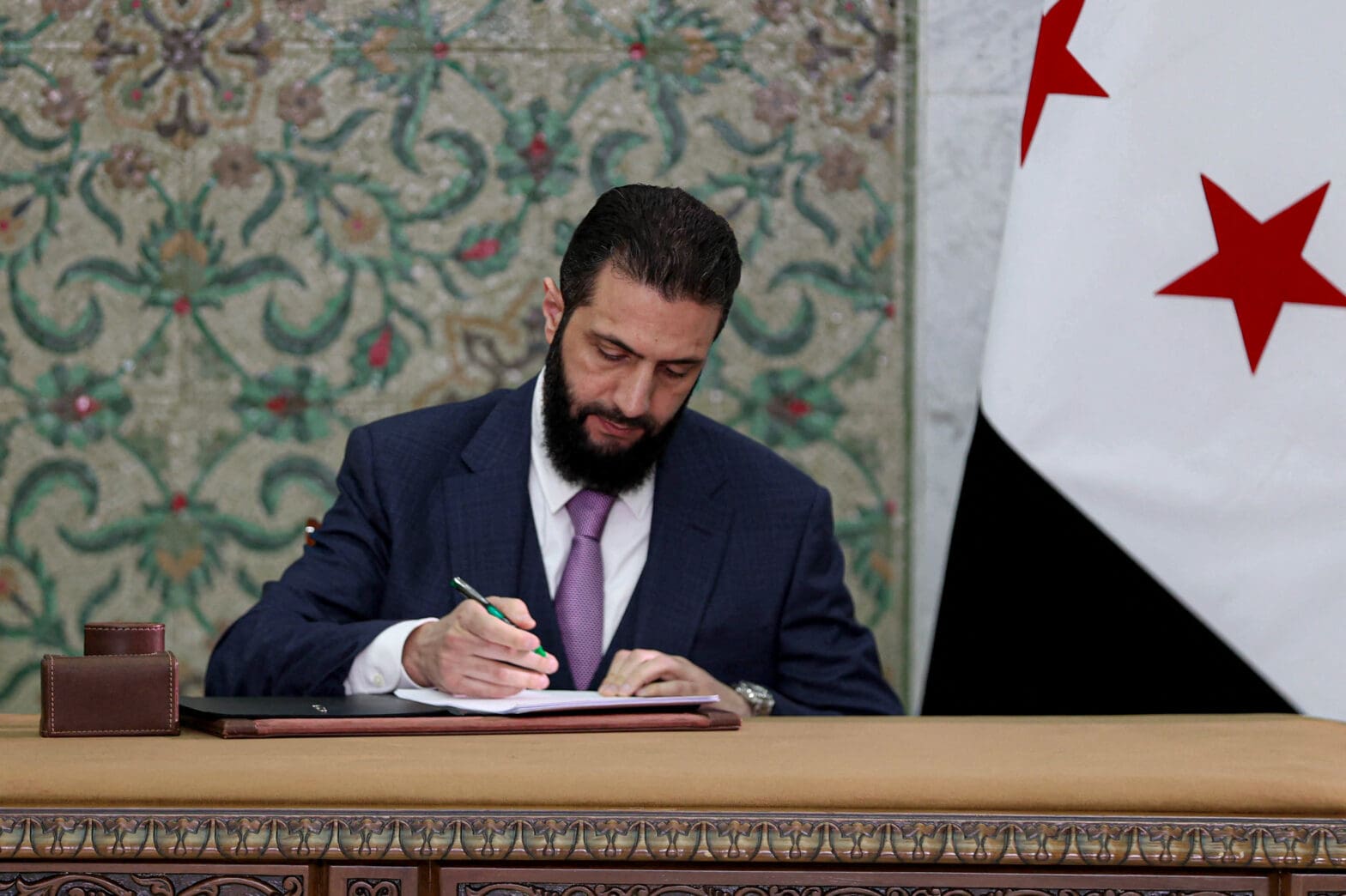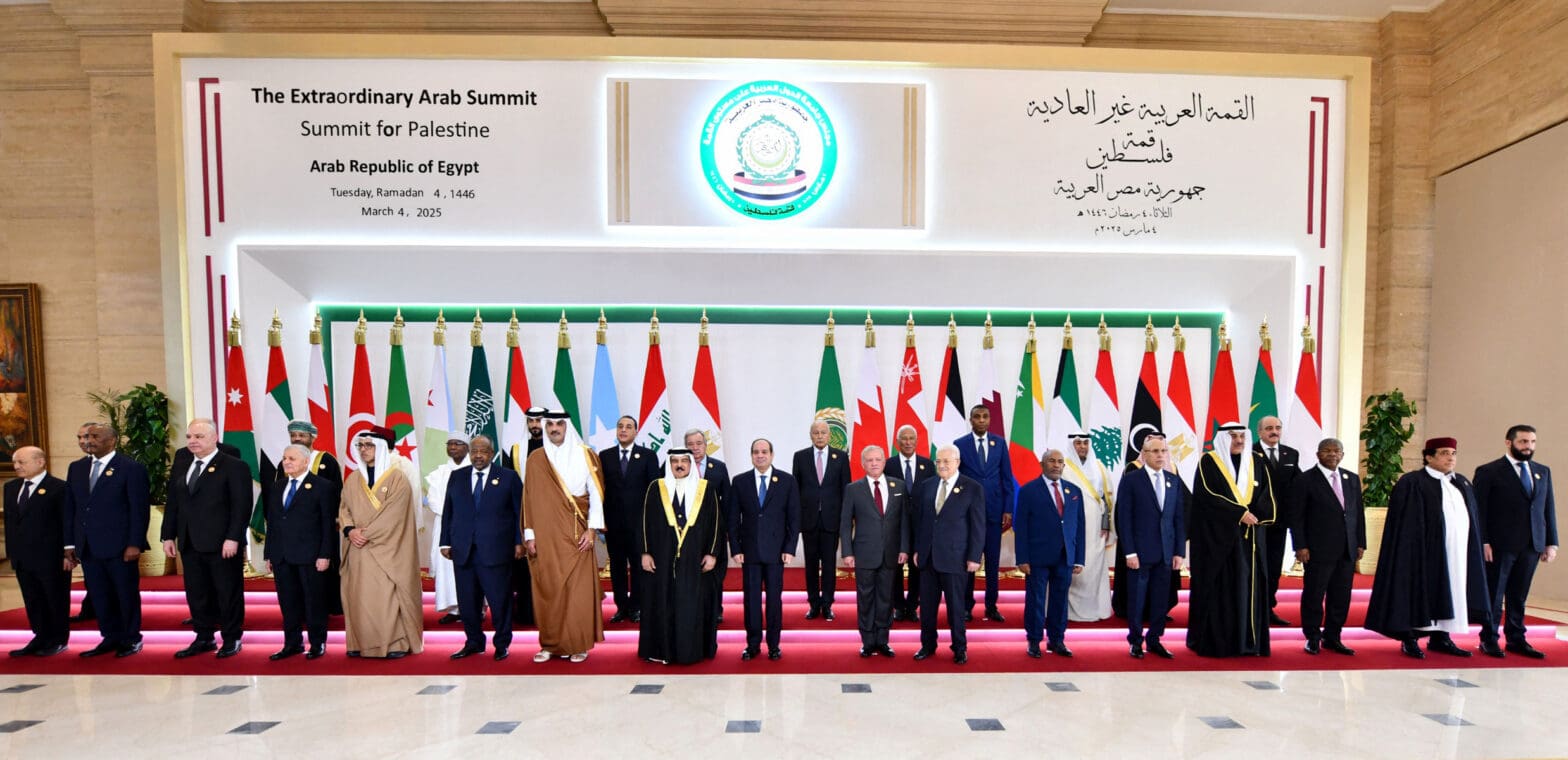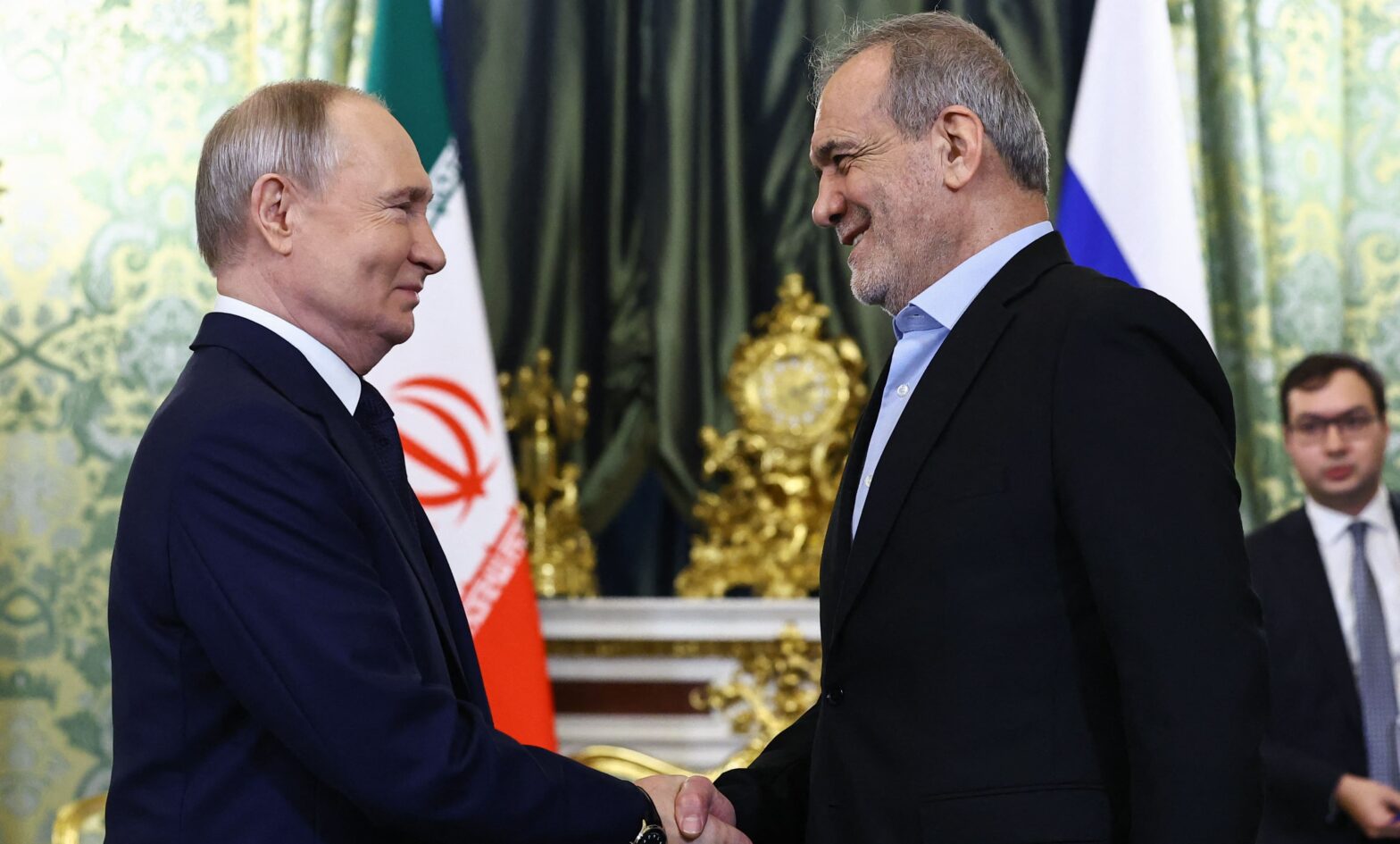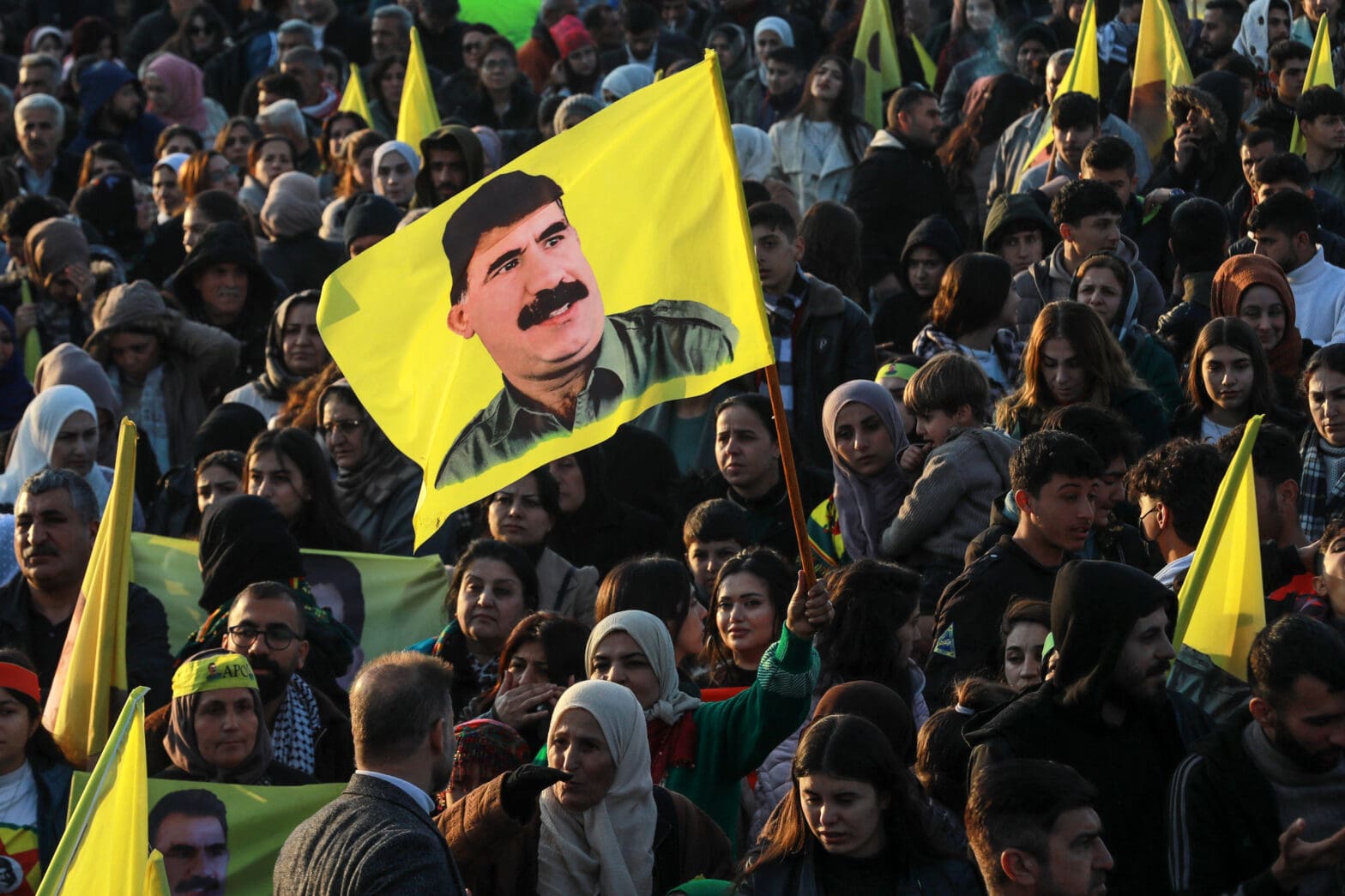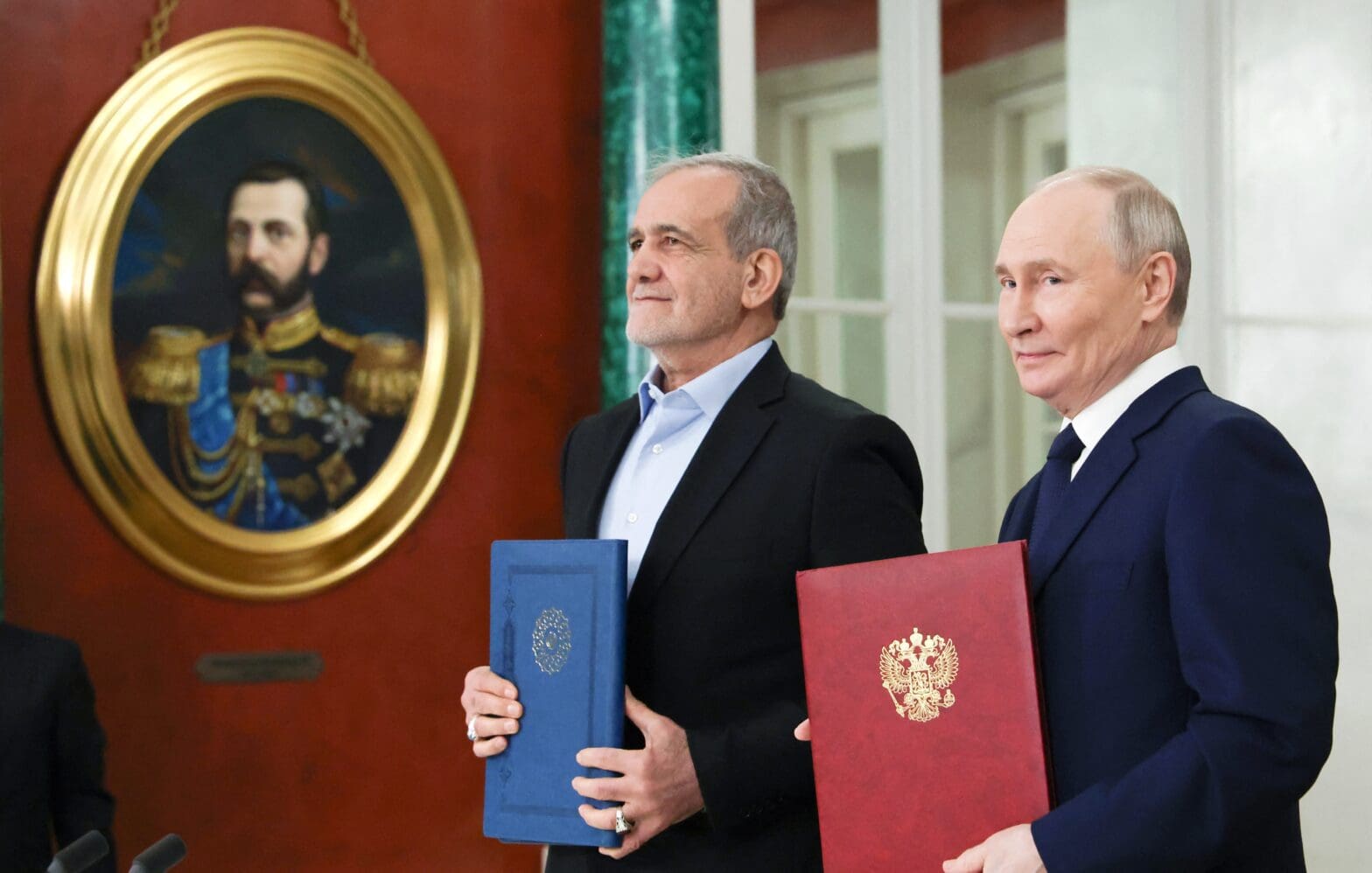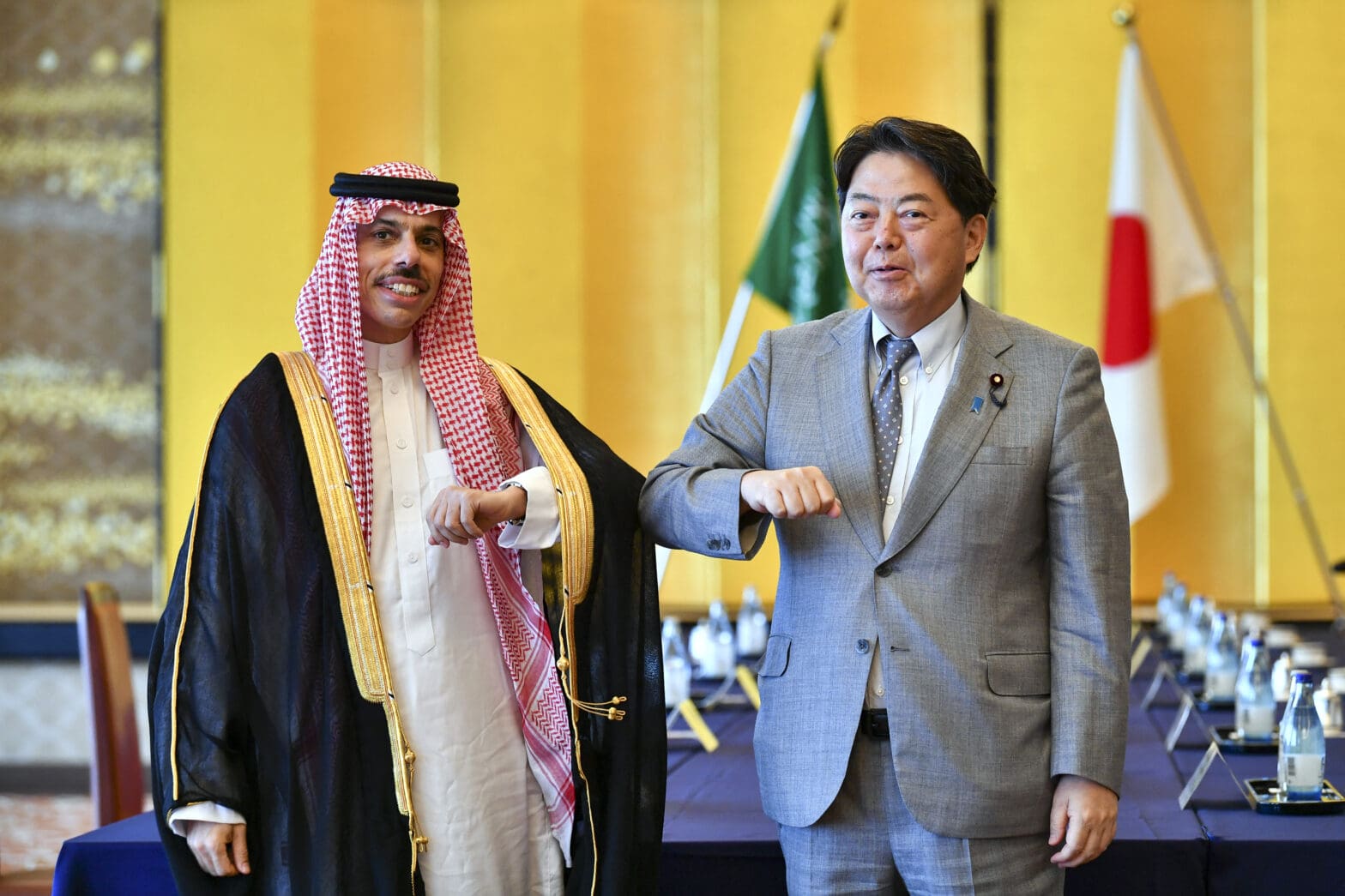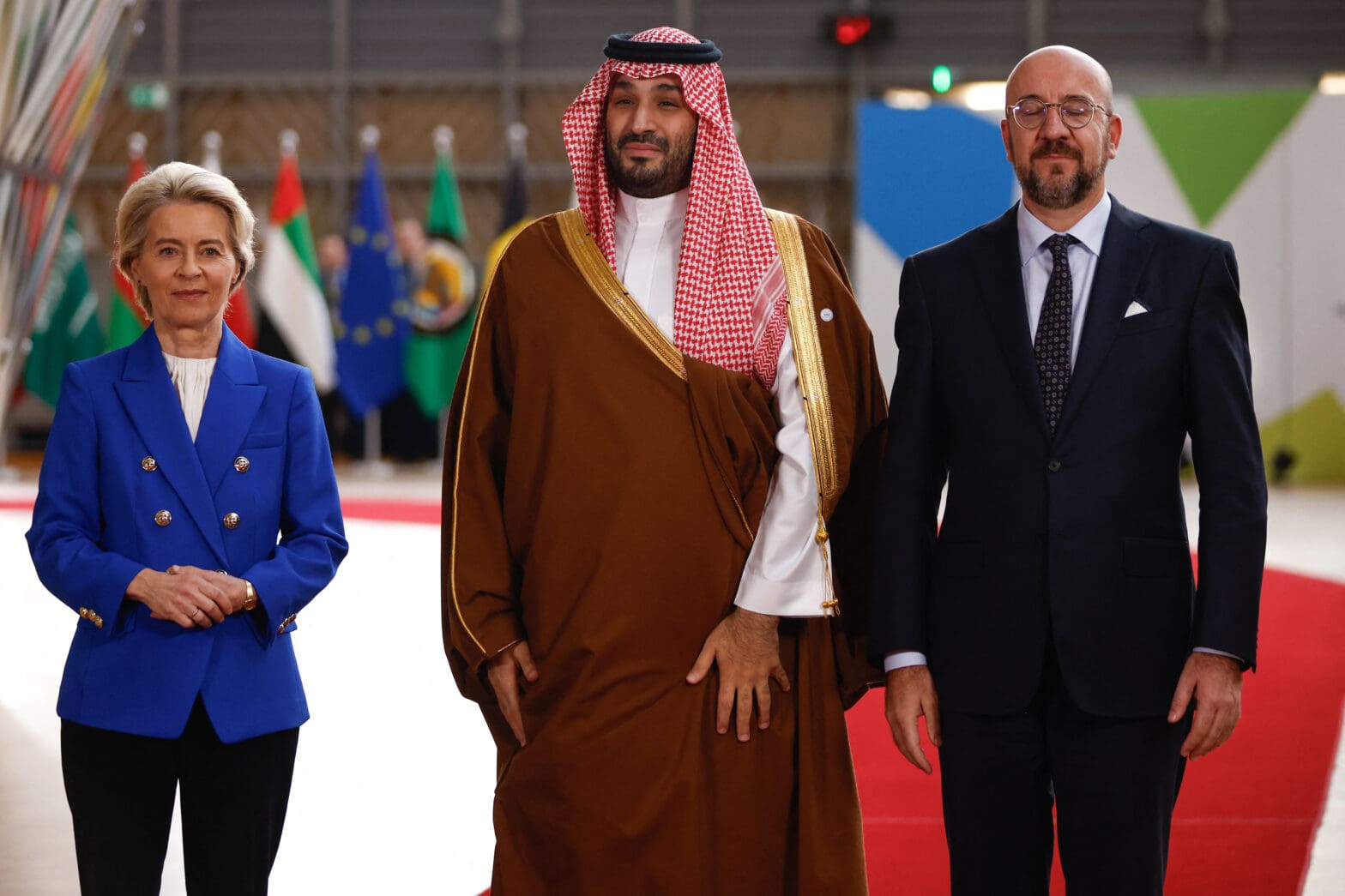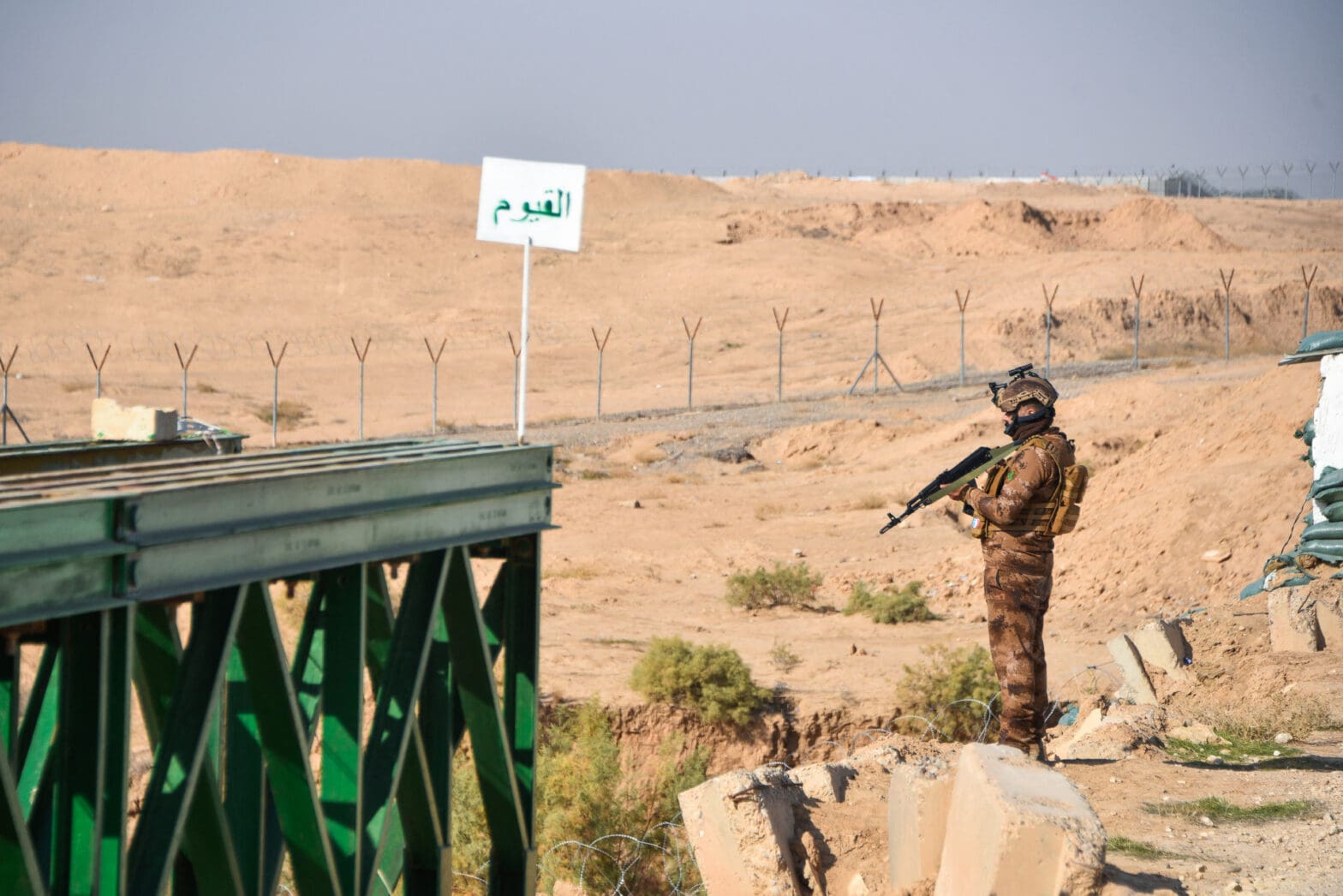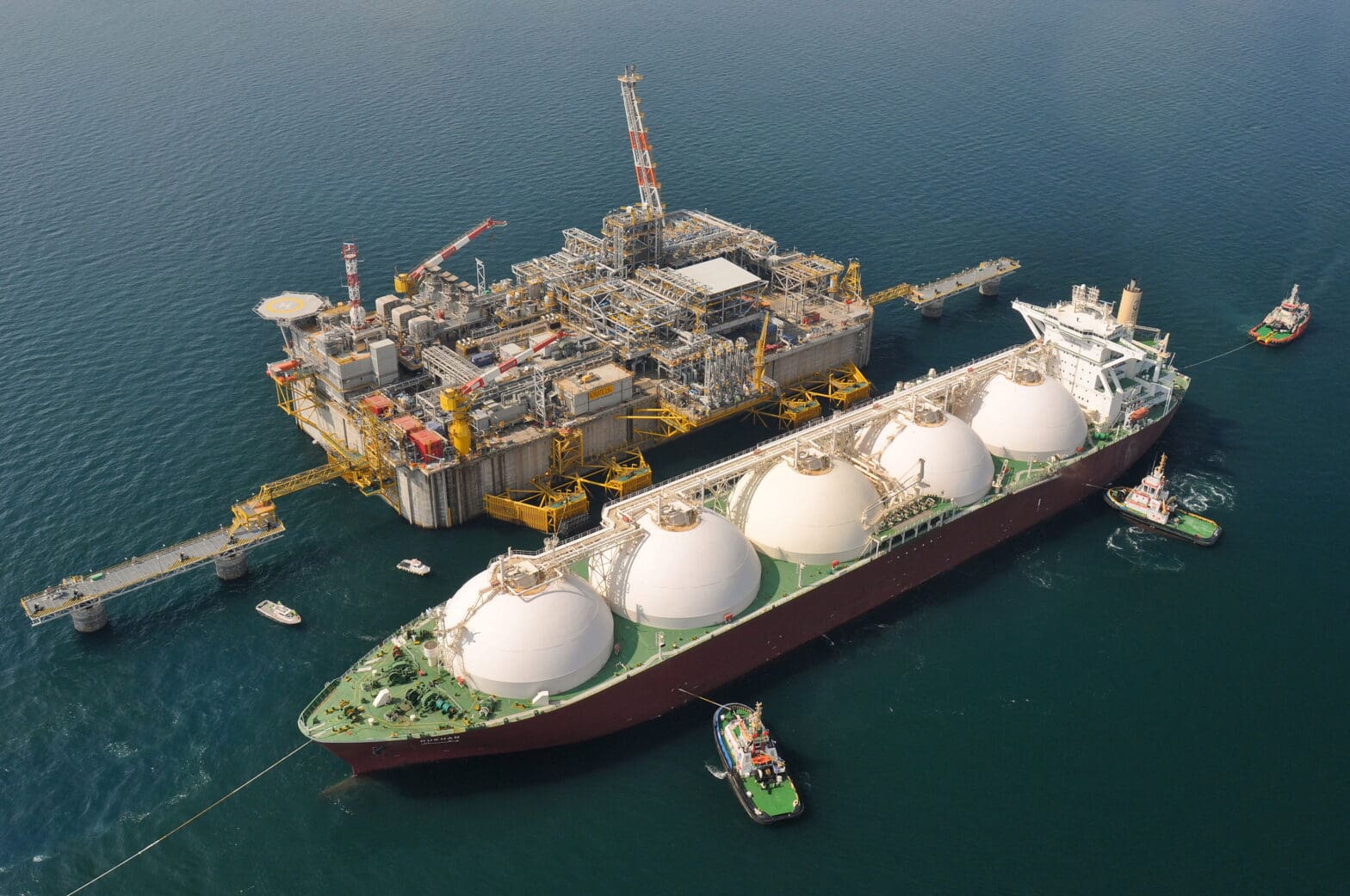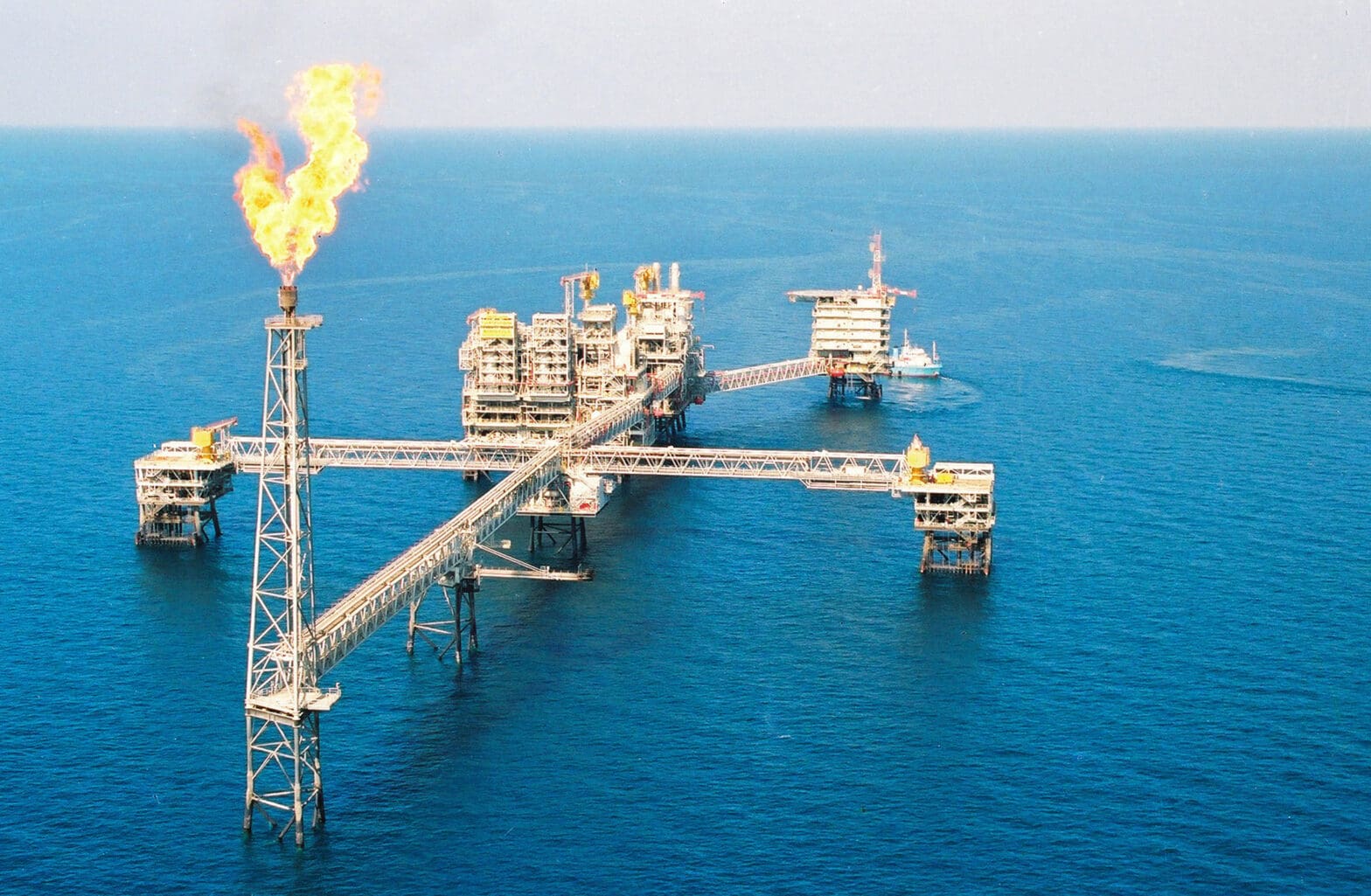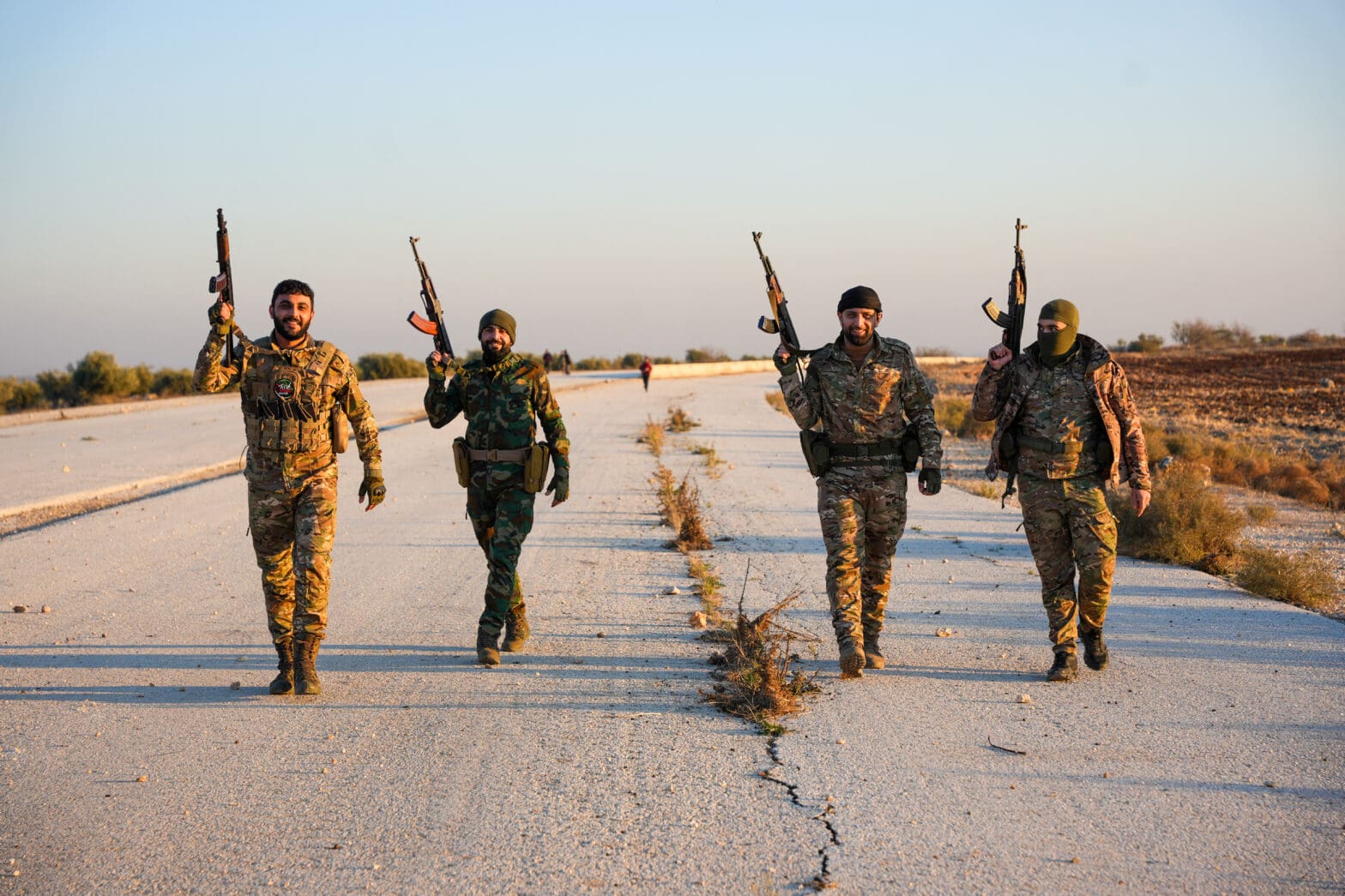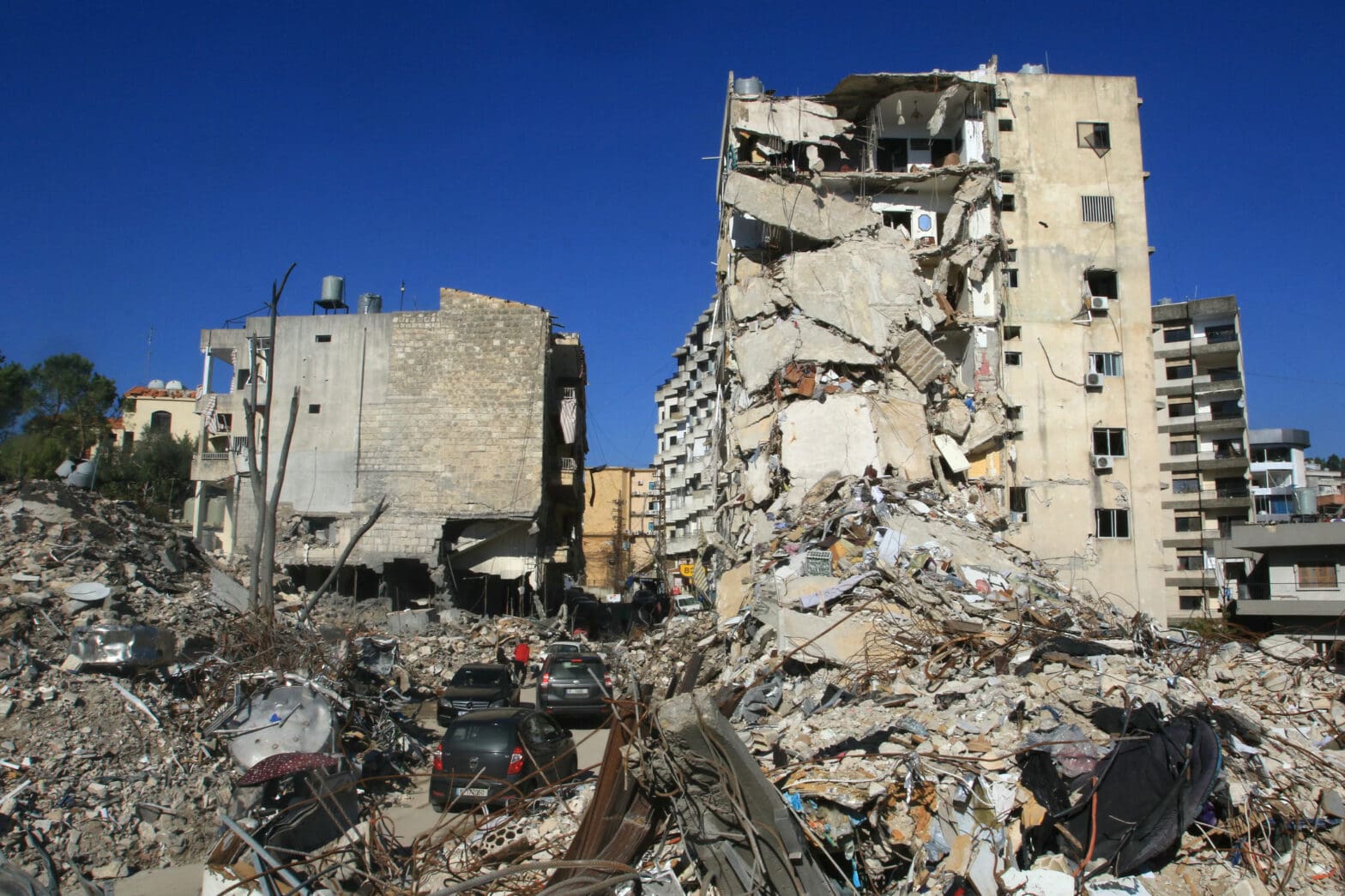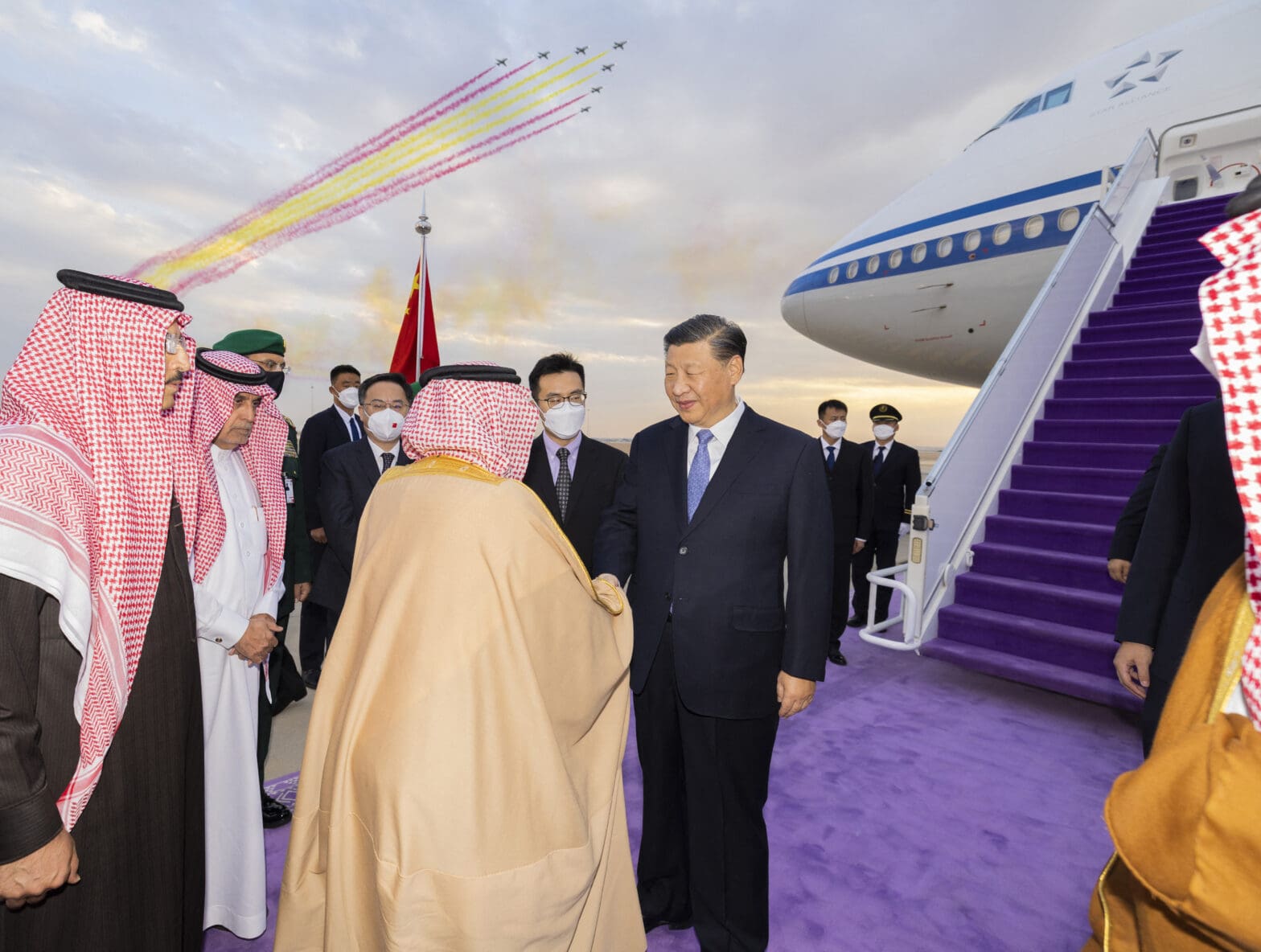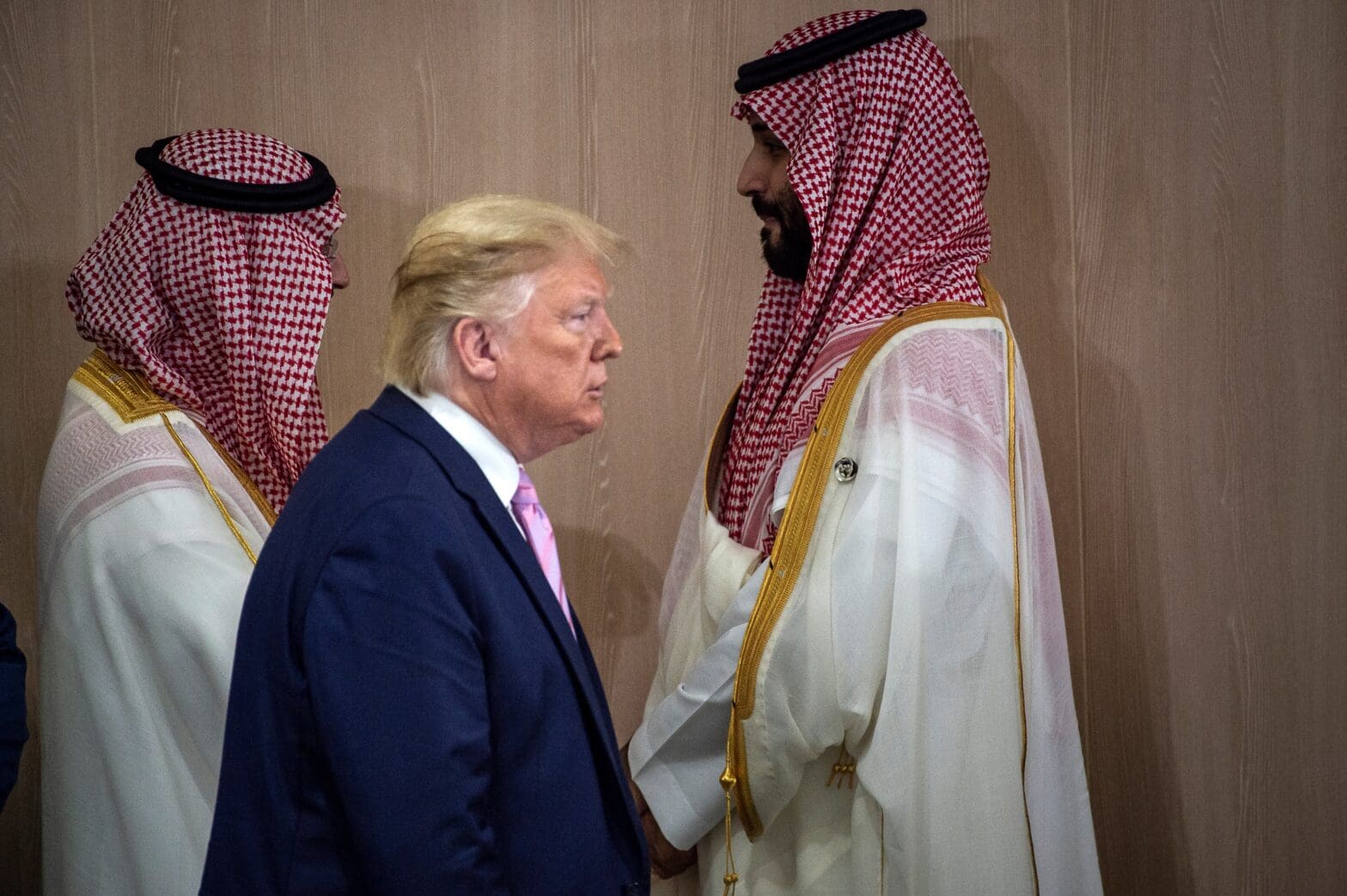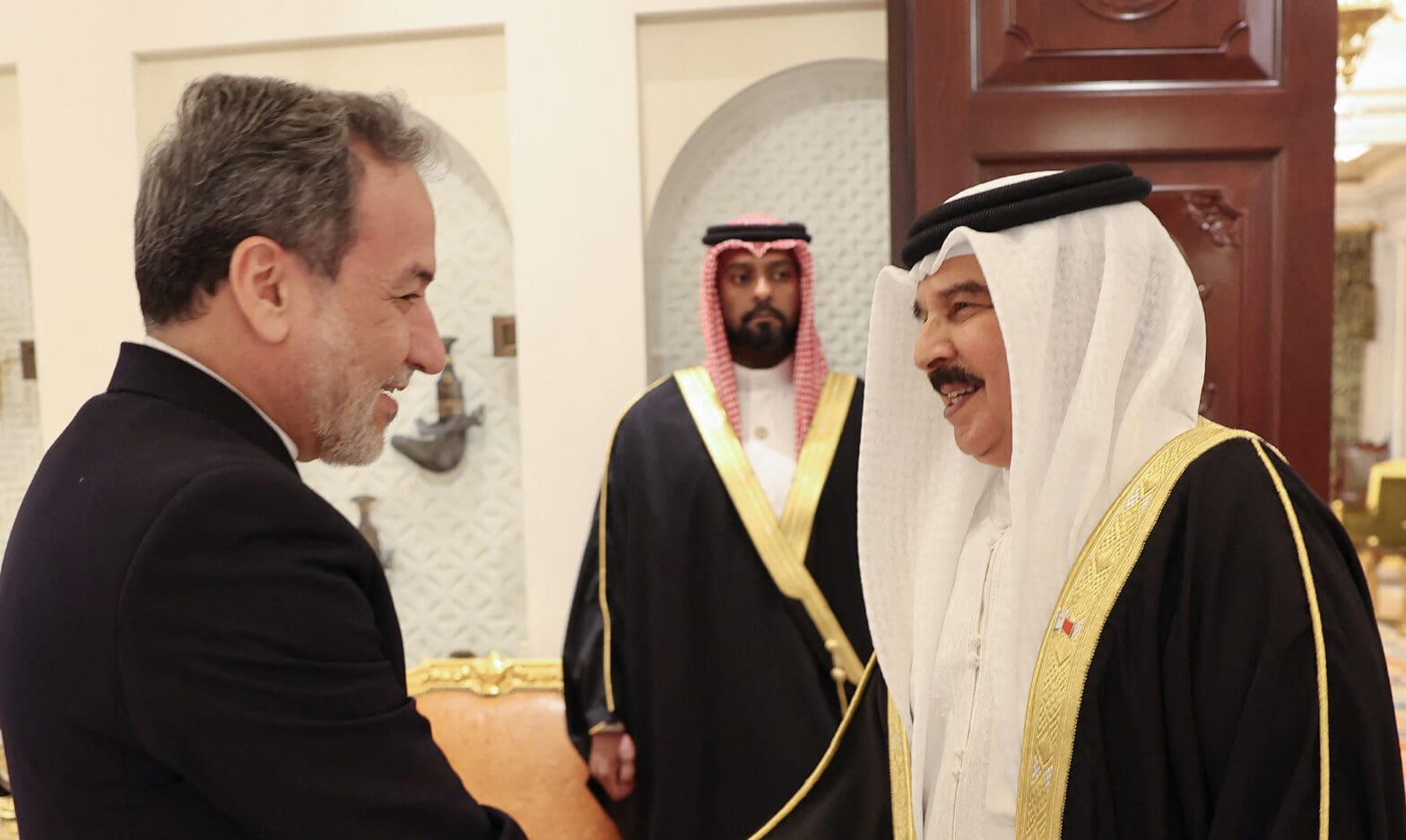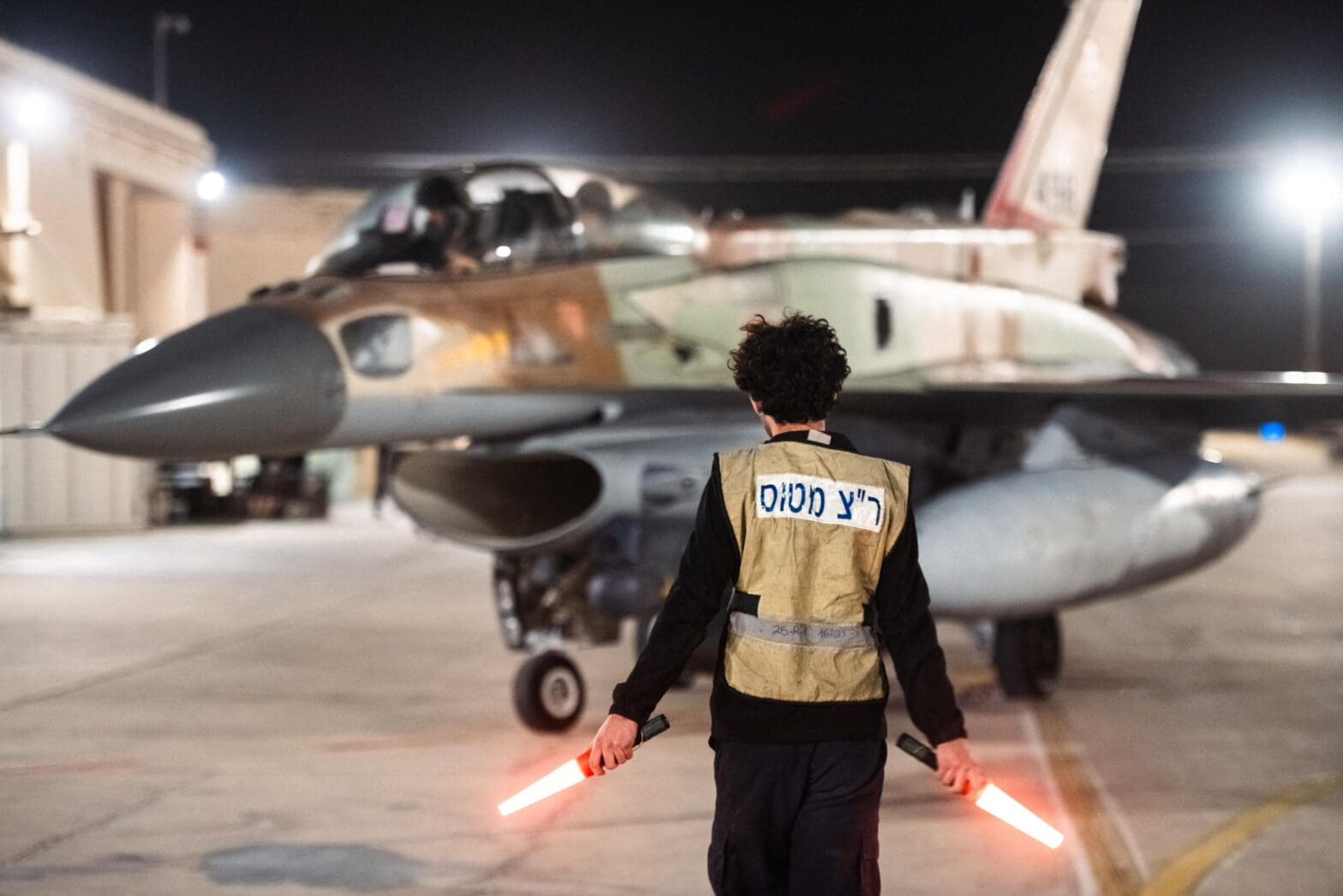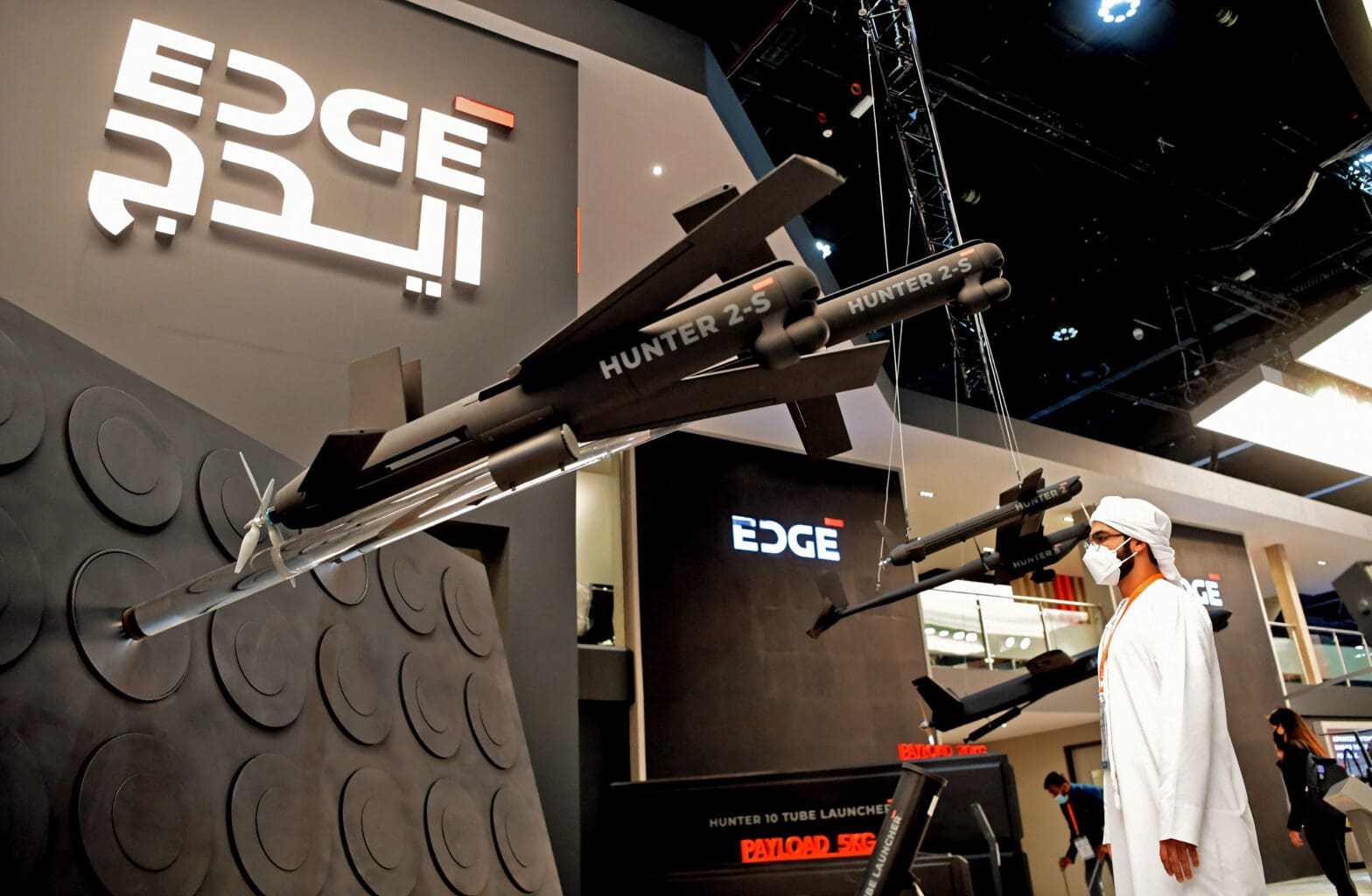Israel’s recognition of Somaliland as an independent state, ushered in by Foreign Minister Gideon Saar’s visit on January 6, is a geopolitical watershed that sheds further light on Israel’s evolving regional strategy after October 7. Much of the early commentary has been distorted by claims that the move is part of a transactional scheme to relocate Palestinians en… Continue reading Israel’s Somaliland Gambit Reflects a Doctrine of Endless Escalation
Afkar Issue: Regional Relations
Momentous change sweeps Yemen as STC overreaches in Hadramawt
In little over a month, Yemen has undergone significant changes on the ground and in the political dynamics underpinning more than ten years of war. In early December, the Southern Transitional Council (STC) initiated a military operation in the governorates of Hadramawt and al-Mahra that brought nearly the entirety of southern and eastern Yemen under… Continue reading Momentous change sweeps Yemen as STC overreaches in Hadramawt
As War Looms, Lebanon Is Forced to Negotiate Under Fire
When Lebanese President Joseph Aoun announced in October that his country was prepared to engage in indirect negotiations with Israel, it marked a rupture with decades of political taboo—and was a tacit admission of how precarious Lebanon’s position has become. The move was not in response to a sudden diplomatic opening. It reflected something more… Continue reading As War Looms, Lebanon Is Forced to Negotiate Under Fire
As Renewal of Iran-Israel War Looms, What Lessons Can Be Learned from June?
Since Israel’s 12-day war with Iran came to an end last June, the prospect of a return to fighting has loomed large, primarily because Israel has yet to achieve all of its goals vis-a-vis Iran and may be determined to do so. Though the war was likely driven by more than one consideration, Israel’s overarching… Continue reading As Renewal of Iran-Israel War Looms, What Lessons Can Be Learned from June?
With Mediation More Important Than Ever, Mediators Must Be Protected
Conflict mediation has emerged as one of the most indispensable tools in the contemporary international system. At a time when great-power competition intensifies across multiple domains, political, economic, and technological, the ability of neutral mediators to facilitate communication and reduce the risks of escalation is more crucial than ever. Yet despite its importance, conflict mediation… Continue reading With Mediation More Important Than Ever, Mediators Must Be Protected
With Ethiopia’s GERD Active, Tensions Mount Along the Nile
After years of mounting tensions between Nile River Basin countries over Ethiopia’s plans to build the Grand Ethiopian Renaissance Dam (GERD) far upstream, the project was finally inaugurated on September 9 without a new agreement in place for the distribution of the Nile’s vital water resources. For Egypt and Sudan, who are downstream from the… Continue reading With Ethiopia’s GERD Active, Tensions Mount Along the Nile
Are Mediterranean Gas Fields Gold Mines or Volcanoes?
The Mediterranean is a region more practiced at crisis management than resolution. From Cyprus to Palestine, Lebanon to Libya, migration to energy, the region’s chronic fault lines simmer beneath the surface, flitting between active and dormant states like geopolitical volcanoes. Time and again, the states attempting to contain or capitalize on these crises end up… Continue reading Are Mediterranean Gas Fields Gold Mines or Volcanoes?
Israel’s Strike on Doha: What It Means for the Region
On September 9, Israel’s military fired several missiles into a residential neighborhood in Doha targeting a meeting of senior Hamas officials discussing the latest American proposal for a ceasefire in Gaza. Although six people were killed, including a Qatari security official, none were the primary targets. The global backlash to the strike has been intense,… Continue reading Israel’s Strike on Doha: What It Means for the Region
Five Years On, UAE-Israel Normalization Weathers the Gaza Storm
When the United Arab Emirates normalized relations with Israel five years ago, it likely expected a degree of discomfort given negative public opinion of Israel in the region amid its ongoing military occupation of Palestine. But the intensification of violent conflict—first in May 2021, and then on a much larger scale after October 7, 2023—has… Continue reading Five Years On, UAE-Israel Normalization Weathers the Gaza Storm
Is the United States Set to Re-Engage in Libya?
A quiet visit to Libya by a senior Trump advisor has raised the specter of Washington taking a renewed interest in the North African country—and the question of whether such engagement could help finally resolve the country’s prolonged political deadlock. Massad Boulos, who advises U.S. President Donald Trump on Middle Eastern and African affairs, visited… Continue reading Is the United States Set to Re-Engage in Libya?
Algeria-Italy Partnership: A New Axis Reshaping the Mediterranean?
When Algerian President Abdelmadjid Tebboune arrived in Rome on July 24 for a state visit, the diplomatic language expressed alongside Italian Prime Minister Giorgia Meloni was effusive. Both leaders described an increasingly crucial partnership to their respective broader strategic ambitions. Tebboune pointed to Italy as “an essential and serious partner in accompanying Algeria’s ambitious economic… Continue reading Algeria-Italy Partnership: A New Axis Reshaping the Mediterranean?
With Lebanon and Syria in Political Flux, Can They Forge A New Relationship?
Post-Assad Syria is searching for its place in Lebanon. Since assuming the presidency in January, President Ahmed al-Sharaa has been keen to emphasize that the Syria of today differs from the one under the Assad regime, which managed affairs in Lebanon for decades through security agencies and local allies. The new administration is seeking to… Continue reading With Lebanon and Syria in Political Flux, Can They Forge A New Relationship?
Growing Ties Between Eastern Libya and Türkiye Increase Tensions in the Mediterranean
For nearly six years, Libya’s eastern-based House of Representatives (HoR) has rejected attempts by the internationally-recognized authorities in Tripoli to ratify a maritime border agreement with Türkiye on the grounds that they were illegal and violated Libyan national sovereignty. In June, however, amid steadily warming relations between the HoR-appointed Government of National Stability (GNS) and… Continue reading Growing Ties Between Eastern Libya and Türkiye Increase Tensions in the Mediterranean
Israel’s Attack on Damascus is a Sign of Its Increasing Frustration and Belligerency
On July 16, the Israeli army launched a massive air strike against the Syrian Defense Ministry, killing at least three people. The strike represents a dramatic escalation against key institutions of a sovereign state, following two days in which the Israeli army targeted Syrian military convoys moving south. While Israel claims that the strikes are… Continue reading Israel’s Attack on Damascus is a Sign of Its Increasing Frustration and Belligerency
As Pressure Mounts, Can Lebanon Handle Hezbollah’s Disarmament?
The recent visit of U.S. special envoy Tom Barrack to Beirut has revived the perennial question of Hezbollah’s fate were it to give up its arms. Three weeks after handing the Lebanese government a letter demanding it take immediate steps to disarm the group, Barrack presented a roadmap for implementation that offers Beirut a window… Continue reading As Pressure Mounts, Can Lebanon Handle Hezbollah’s Disarmament?
What the UAE Hopes To Gain from Israel’s Growing Isolation
When U.S. President Donald Trump visited the Gulf last month, complete with fanfare and choreographed spectacle, it reinforced a growing sense among Gulf states that the region is on a political ascent. The four-day tour of Saudi Arabia, Qatar and the United Arab Emirates was Trump’s first major foreign trip in his second term—a deliberate… Continue reading What the UAE Hopes To Gain from Israel’s Growing Isolation
What the Iranian Attack on Qatar Means for the Future of Gulf Security
Iran’s ballistic missile attack on the Qatari airbase at Al Udeid was viewed by many international analysts and media strictly through the lens of the confrontation between the U.S., Israel and Iran. Widely seen as a symbolic move, the attack’s lack of casualties allowed U.S. President Donald Trump to pursue his preferred option of de-escalation… Continue reading What the Iranian Attack on Qatar Means for the Future of Gulf Security
Syria’s Opening with the West Poses Russia Dilemma for Damascus
Since President Donald Trump’s Gulf tour in mid-May, U.S.-Syria relations have evolved significantly. Washington’s lifting of its most crippling sanctions on Syria, the appointment of an American envoy to the country, Trump’s meeting with Syrian President Ahmed al-Sharaa in Riyadh and the reopening of the U.S. ambassador’s residence in Damascus all illustrate a new reality… Continue reading Syria’s Opening with the West Poses Russia Dilemma for Damascus
How Israel’s Dangerous New Grand Strategy Has Set Mideast on Fire
For more than a decade, Israeli Prime Minister Benjamin Netanyahu warned the world of Iran’s nuclear ambitions. He repeatedly accused Tehran of being on the cusp of acquiring a bomb, condemned diplomatic overtures as capitulation, and vowed Israel would never allow Iran to become a nuclear power. Yet despite the endless threats, leaked war plans,… Continue reading How Israel’s Dangerous New Grand Strategy Has Set Mideast on Fire
The Islamic Republic’s Existential Crisis
Israel’s decision to launch airstrikes on Iran’s nuclear facilities and military should have come as no surprise following a year of devastating setbacks for the Iranian regime and its proxy network in the region. For almost a decade, the two sides have engaged in a shadow war and tit-for-tat military exchanges across several conflict theaters.… Continue reading The Islamic Republic’s Existential Crisis
Trump’s Gulf Visit Marks a Recalibration of Ties
Donald Trump’s return to the Gulf in May, the first overseas trip of his second term as U.S. president, was no normal diplomatic visit. It was a strategic encounter shaped by mutual interests and shifting global dynamics. For Gulf leaders, the visit offered an opportunity to reposition themselves not just as regional actors in the… Continue reading Trump’s Gulf Visit Marks a Recalibration of Ties
Tensions Mount in the Sahel as Algeria and Mali Face Off
Long-simmering tensions between Algeria and Mali have threatened to boil over in recent weeks after a series of explosive incidents took place along their border. On April 1, Algeria shot down a Malian armed drone over Tin Zaoutine, a sensitive frontier zone. The two sides both claimed it occurred in their own airspace. In response,… Continue reading Tensions Mount in the Sahel as Algeria and Mali Face Off
In Engaging the Haftars, Türkiye Makes Pragmatic Shift in Libya
Türkiye’s welcome of Saddam Haftar, son of eastern Libya’s de facto ruler Khalifa Haftar, was laden not only with ceremony but with implications for the North African country’s delicate balance of power. Walking down the red carpet in Ankara on April 4, the commander of land forces in his father’s self-styled Libyan Arab Armed Forces… Continue reading In Engaging the Haftars, Türkiye Makes Pragmatic Shift in Libya
Will China Engage More on Middle East Security?
Since the launch of its Belt and Road Initiative in 2013, China has markedly expanded its trade, industrial investment and other economic activities in the Middle East. As its influence has grown, regional governments like Saudi Arabia, Iran and Türkiye have urged Beijing to play a greater role in the Middle East’s security affairs. These… Continue reading Will China Engage More on Middle East Security?
Seizing the Moment for Peace in Syria
As the Trump administration begins pulling U.S. troops out of Syria and openly mulling its long-term future there, the Syrian Democratic Forces (SDF)—a Kurdish-led coalition force—may soon lose its most important military and political backer. This possibility, and the wider geopolitical shifts it could bring, was likely a major factor in SDF General Commander Mazloum… Continue reading Seizing the Moment for Peace in Syria
U.S. Disengagement Spurs Turkish-European Defense Cooperation
As the United States’ long-standing commitment to European security erodes under the Trump administration, the bloc’s defense partnership with Türkiye hit a new milestone in March, when a consortium of Europe’s leading arms companies submitted a formal bid to sell Ankara 40 Eurofighter Typhoon jets. The fighters have seen active service in the air forces… Continue reading U.S. Disengagement Spurs Turkish-European Defense Cooperation
As Europe Adjusts to Life Without U.S. Security Umbrella, Lessons for GCC Abound
The Trump administration’s decision in early 2025 to suspend military aid to Ukraine—resuming it only after Kyiv agreed to negotiate with Moscow in March—marks a turning point in transatlantic security. It has forced Europe to reassess its strategic posture amid a conflict that began with Russia’s 2014 annexation of Crimea and escalated into a full-scale… Continue reading As Europe Adjusts to Life Without U.S. Security Umbrella, Lessons for GCC Abound
Trump is back. Should Gulf States accelerate decoupling from the U.S.?
Eight weeks into the second Trump presidency, the world’s governments—including those in the Gulf—are still trying to make sense of the chaos in Washington. Domestic politics aside, the new administration’s economic policies have sparked fears of a “Trumpcession” amid an escalating trade war and a falling dollar and stock market. Both consumer and business confidence… Continue reading Trump is back. Should Gulf States accelerate decoupling from the U.S.?
Abu Dhabi’s Quiet Engagement in Afghanistan May Ease Taliban Isolation
For nearly a decade, international diplomacy concerning Afghanistan was mainly mediated by Qatar. Yet since the Taliban rolled into Kabul in August 2021, leading figures from the movement have made a string of high-profile visits to another key Gulf powerbroker, the United Arab Emirates. Their warm reception by the Emirati authorities suggests that Abu Dhabi… Continue reading Abu Dhabi’s Quiet Engagement in Afghanistan May Ease Taliban Isolation
Rebuilding Forever: Lessons of our failures
*This article is the second part in a two-part series. Read Part 1 here. If Syria’s Arab Spring forerunners have a fundamental lesson to impart, it is that achieving a symbiosis between a revolution’s leadership and its public is required to successfully transmute a deposed tyranny into a nation of self-determination and the representative state… Continue reading Rebuilding Forever: Lessons of our failures
The Arab Plan for Gaza Has Two Problems: Israel and the PA
Egypt’s proposal for the reconstruction and administration of Gaza has emerged as an urgent intervention in the crisis that has unfolded since October 7, 2023. Backed by the Arab states, the Organization of Islamic Cooperation, and several European nations, the plan is not merely a humanitarian initiative—it is a geopolitical maneuver meant to counter the… Continue reading The Arab Plan for Gaza Has Two Problems: Israel and the PA
Is Russia Entering U.S.-Iranian Nuclear Negotiations?
A three-way dance is developing between Washington, Moscow and Tehran over Iran’s nuclear program. Recently, U.S. President Donald Trump sent a letter directly to Iran’s supreme leader, Ali Khamenei, asking to enter negotiations, while indicating to the media separately that the alternative would be military action to prevent Iran from acquiring nuclear weapons. Khamenei responded… Continue reading Is Russia Entering U.S.-Iranian Nuclear Negotiations?
Call to Disband PKK Reshapes Türkiye, Syria Power Dynamics
The consequences of the call by the founder of the Kurdistan Workers’ Party (PKK), Abdullah Ocalan, for the group to disband are still reverberating—not just in Türkiye but also in the wider region. Shifting alliances in Syria—exemplified by the recent agreement between the Kurdish-led Syrian Democratic Forces (SDF) and the Syrian government—confirm that Ocalan’s message… Continue reading Call to Disband PKK Reshapes Türkiye, Syria Power Dynamics
Could the Russia-Iran Comprehensive Partnership Treaty Challenge Gulf Security?
On January 17, the presidents of Iran and Russia met in Moscow to sign a 20-year “comprehensive strategic partnership treaty.” The agreement, which focuses primarily on enhancing trade and security cooperation, comes as each country indirectly confronts the United States in conflicts with Ukraine and Israel, and on the heels of the abrupt toppling of… Continue reading Could the Russia-Iran Comprehensive Partnership Treaty Challenge Gulf Security?
In Multipolar World, Japan and GCC Should Develop Strategic Ties
In December, the Gulf Cooperation Council and Japan concluded their first round of discussions on a free trade agreement (FTA). History suggests this was the start of a process that may take years, if not decades—reaching an FTA between the GCC and South Korea took 15 years, with many bumps along the way. Nevertheless, this… Continue reading In Multipolar World, Japan and GCC Should Develop Strategic Ties
Why Trump’s Presidency Could Mean Closer EU-GCC Ties
The arrival of Donald Trump for a second term in the White House raises critical questions for the Middle East. Trump took office just days after a ceasefire deal aimed at ending a catastrophic 15-month war between Israel and Hamas, which had come close to dragging the region into an all-out conflagration. Now the president… Continue reading Why Trump’s Presidency Could Mean Closer EU-GCC Ties
Assad’s Fall in Syria Poses Serious Questions Inside Iraq
Recent developments in Syria, including the fall of the Assad regime, Iran’s failure to quell the rebel advance into Damascus and subsequent withdrawal of its proxies from the country, have generated shockwaves in neighboring Iraq. For the first time in Iraq’s post-2003 political history, the prospect of breaking Iran’s outsized influence over the Iraqi state… Continue reading Assad’s Fall in Syria Poses Serious Questions Inside Iraq
Will Europe’s Green Agenda Disrupt LNG Imports from Qatar?
The European Union’s ambitious climate goals have set it on a transformative path to sustainability, with policies like the Corporate Sustainability Due Diligence Directive (CS3D) leading the charge. But as these policies take effect, they risk unsettling the continent’s energy security. Qatar, one of Europe’s critical suppliers of liquefied natural gas (LNG), has warned that… Continue reading Will Europe’s Green Agenda Disrupt LNG Imports from Qatar?
By Leveraging LNG, Qatar Can Fuel Fairness in Global Climate Policy
Imagine having a neighbor who spent decades accumulating massive debts to build a lavish mansion and enjoy a life of wealth and opulence. Now, when the debt collector arrives, the neighbor demands that everyone on the street—no matter how little they borrowed or their financial circumstances—share in the repayment burden. It is hard to imagine… Continue reading By Leveraging LNG, Qatar Can Fuel Fairness in Global Climate Policy
MENA Outlook for 2025
With the December collapse of the Assad regime in Syria, 2024 came to a close in a dramatic and region-altering fashion. This, along with the numerous other major trend lines and points of conflict, likely makes 2025 a year that will be significant in reshaping the region’s future. Looking forward to what may be coming,… Continue reading MENA Outlook for 2025
Why Jihadist Groups Never Really Die
The lightening quick takeover of Syria by Hayat Tahrir al-Sham (HTS) led-fighters in an offensive that began on November 27 and ousted the 54-year old Assad regime by December 8, has been stunning. Indeed, the speed of developments has left many observers with more questions than answers, including on the character of the rebel forces,… Continue reading Why Jihadist Groups Never Really Die
Arab Public Opinion Under Pressure
Editor’s Note The relevance of public opinion in the Middle East and North Africa is a question often debated but little understood. Given the high prevalence of autocracy, surveys of popular sentiment are limited, while freedoms of speech and press are not the norm. Indeed, as thousands of political prisoners freed in recent days from… Continue reading Arab Public Opinion Under Pressure
As Syria Heats Up, Türkiye Finds Itself in the Spotlight
The sudden and dramatic developments in northern Syria—beginning in the outskirts of Idlib and surrounding villages near Aleppo and culminating in Syria’s second largest city falling into rebel hands—have thrust Türkiye—widely seen as the closest external power to the rebel factions—into a spotlight it neither sought nor fully avoided. The speed and ease with which… Continue reading As Syria Heats Up, Türkiye Finds Itself in the Spotlight
Can the Israel-Hezbollah Ceasefire Hold?
After more than a year of hostilities that intensified dramatically in recent months, Hezbollah and Israel have agreed to a ceasefire, but the fragile agreement has already been tested by reported violations. In this interview with Afkār, Saoud El Mawla, visiting senior fellow at the ME Council, examines the deal’s significance and durability, as well… Continue reading Can the Israel-Hezbollah Ceasefire Hold?
Thinking Through China’s Middle East Policy Amid War
For many years, China has been expanding its influence to every corner of the globe. And while its strategic priorities remain anchored in the Western Pacific—where it faces great-power rivalry with the United States, myriad territorial disputes, tensions on the Korean Peninsula and the potential for military conflict over the Taiwan Strait—its steadily growing presence… Continue reading Thinking Through China’s Middle East Policy Amid War
Trump 2.0 and the Gulf’s Strategic Future
President-elect Donald Trump’s first term in office reshaped U.S.-Gulf relations. His approach focused on cultivating personal bonds with leaders of Gulf Cooperation Council (GCC), signing massive arms deals, and for the most part not touching human rights issues. Gulf statesmen mostly welcomed this approach, which provided immediate defense assurances without challenging their sovereignty. However, with… Continue reading Trump 2.0 and the Gulf’s Strategic Future
Ethiopia and Somalia on the Edge of War
For months, momentum had been building toward war between Ethiopia and Somalia. After the breakaway region of Somaliland signed an agreement with Addis Ababa in January to exchange littoral rights for potential diplomatic recognition, tensions soared across the Horn of Africa. While recent weeks have seen the regional boil reduce to a simmer, other hot-button… Continue reading Ethiopia and Somalia on the Edge of War
Efforts To Restore Bahrain-Iran Ties Gather Momentum
On October 21, Iran’s Foreign Minister Abbas Araghchi visited Manama and met with King Hamad bin Isa Al Khalifa, marking a significant turning point in Iran-Bahrain relations that have been severed since 2016. This visit—the first by an Iranian foreign minister to Bahrain since 2010—took place amid an escalating military confrontation between Iran and Israel. While Bahrain… Continue reading Efforts To Restore Bahrain-Iran Ties Gather Momentum
How Will Iran React to Israel’s Latest Strikes?
On October 26, Israel carried out a long-anticipated strike against Iran, which came in retaliation for an Iranian missile barrage on Israel earlier this month—itself a response to a series of Israeli assassinations of Iranian, Hezbollah, and Hamas leaders since July. The latest exchange, however, marks a significant escalation in the confrontation between the two… Continue reading How Will Iran React to Israel’s Latest Strikes?
Beyond BRICS Summit, UAE and Brazil Deepen Ties
The BRICS+ summit being held on October 22 and 23 in Russia marks the first with the United Arab Emirates as a full member. Since joining the bloc at the beginning of the year, the Gulf state has ramped up its cooperation with other members of the bloc, particularly Brazil. Already the Emirates’ largest trade… Continue reading Beyond BRICS Summit, UAE and Brazil Deepen Ties

